


By Anna K. Miller and Sam Dorman
Idaho school libraries have become facilitators for a national far-left agenda that warps both sex and gender through exposure to pornographic material as well as noxious propaganda.
School libraries are part of a learning environment that, along with other public libraries, serve as a "catalyst that keep[s] students learning," the Idaho Commission for Libraries (ICfL) has said. Idaho Freedom Foundation (IFF) has already outlined how the state’s formal sex education departs from traditional ethics (e.g. teaching the "new abstinence" and showing animated sex scenes to students). That curriculum, combined with activist groups' influences and radical books, has created institutions that promote left-wing propaganda. This happens in districts across Idaho.
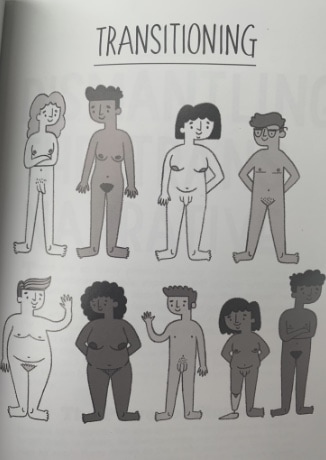
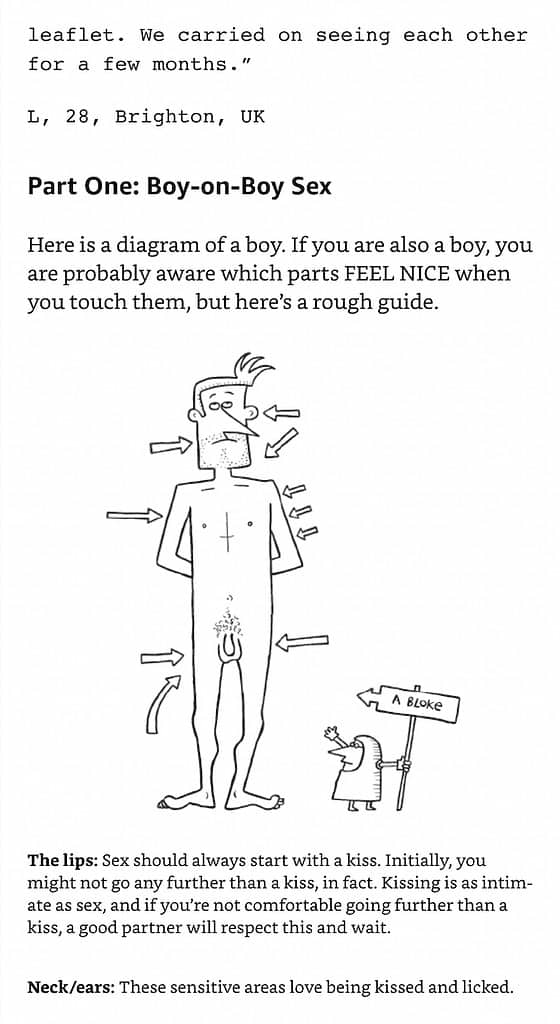
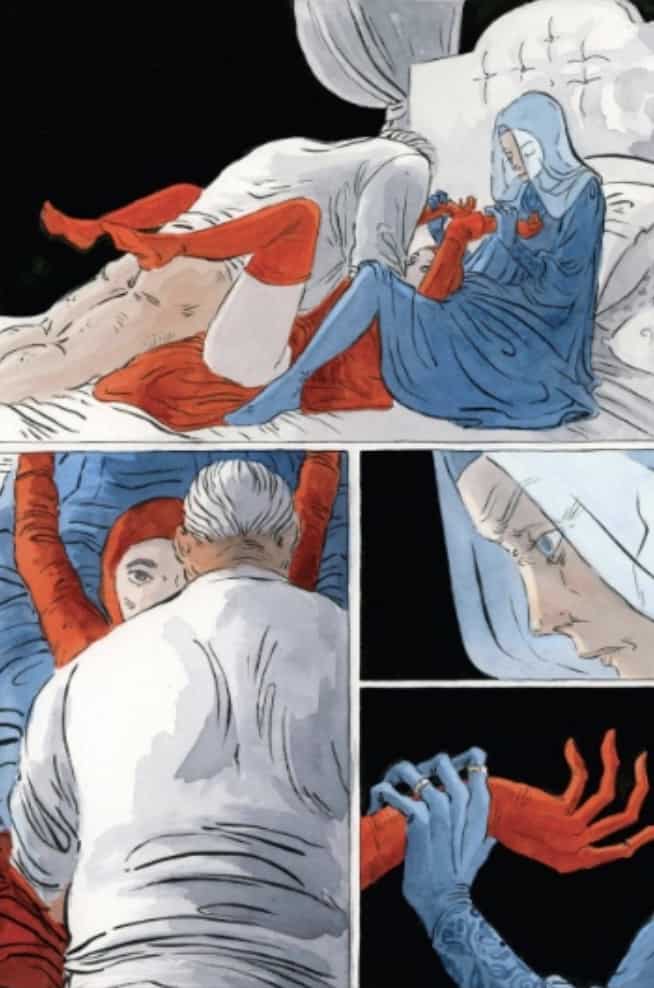
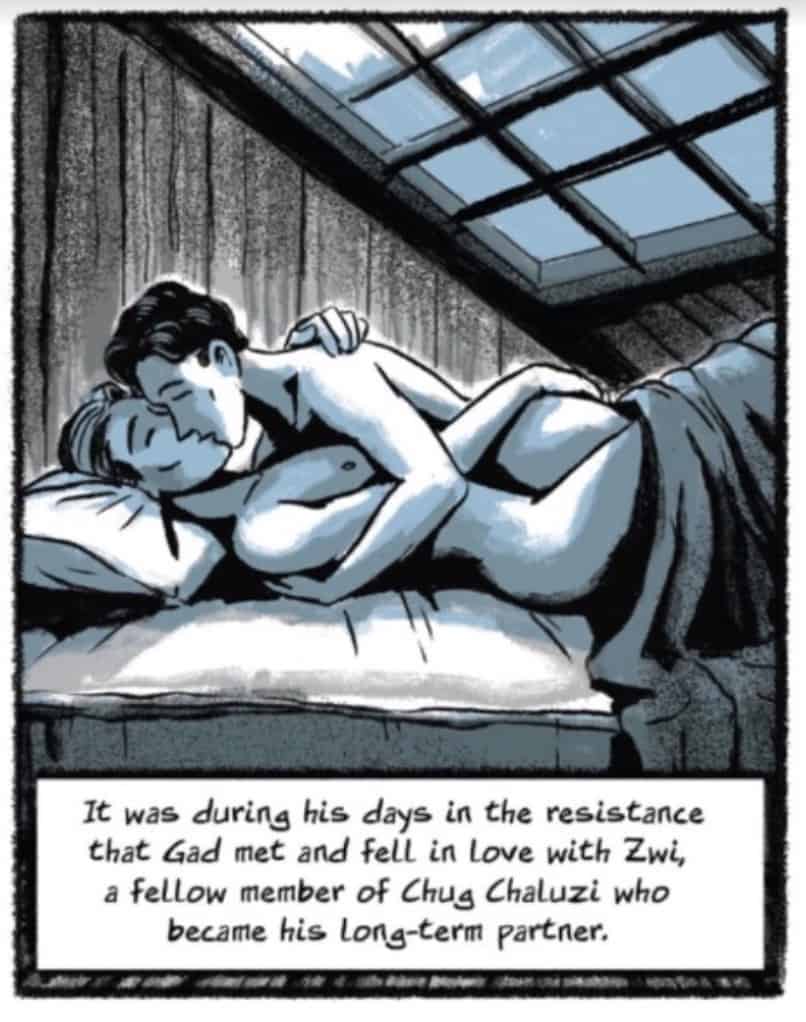
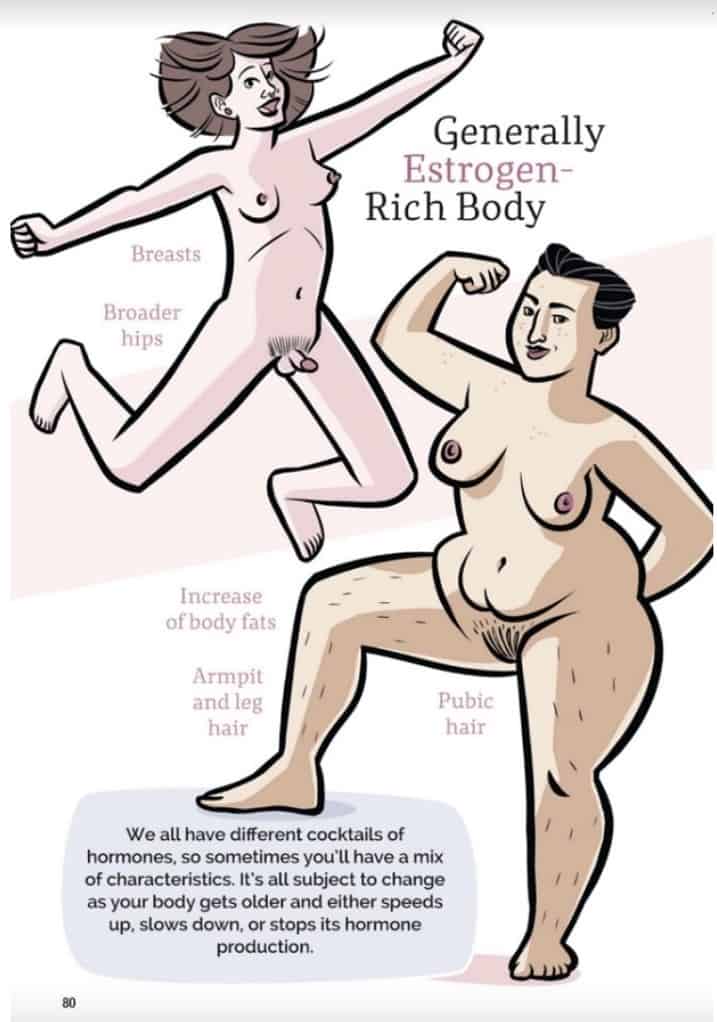
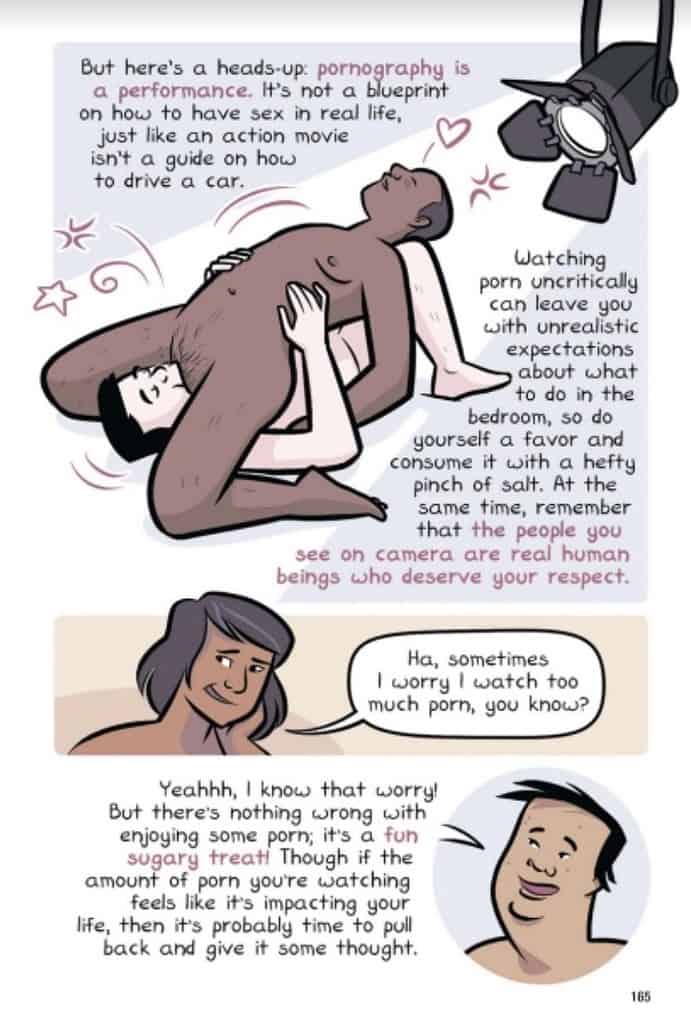
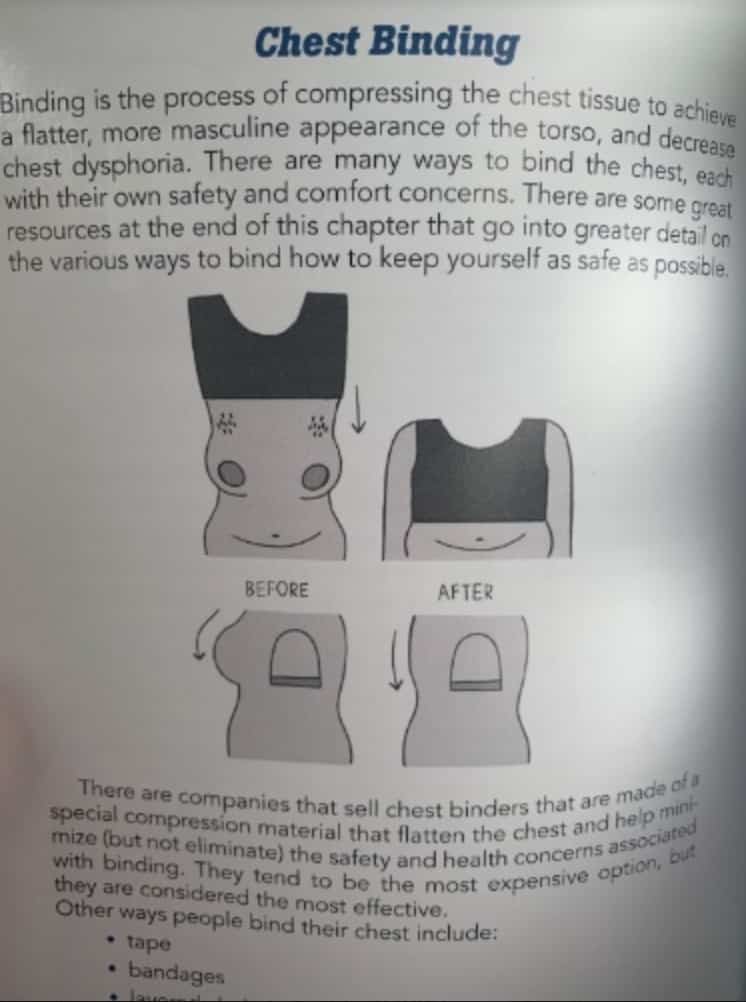
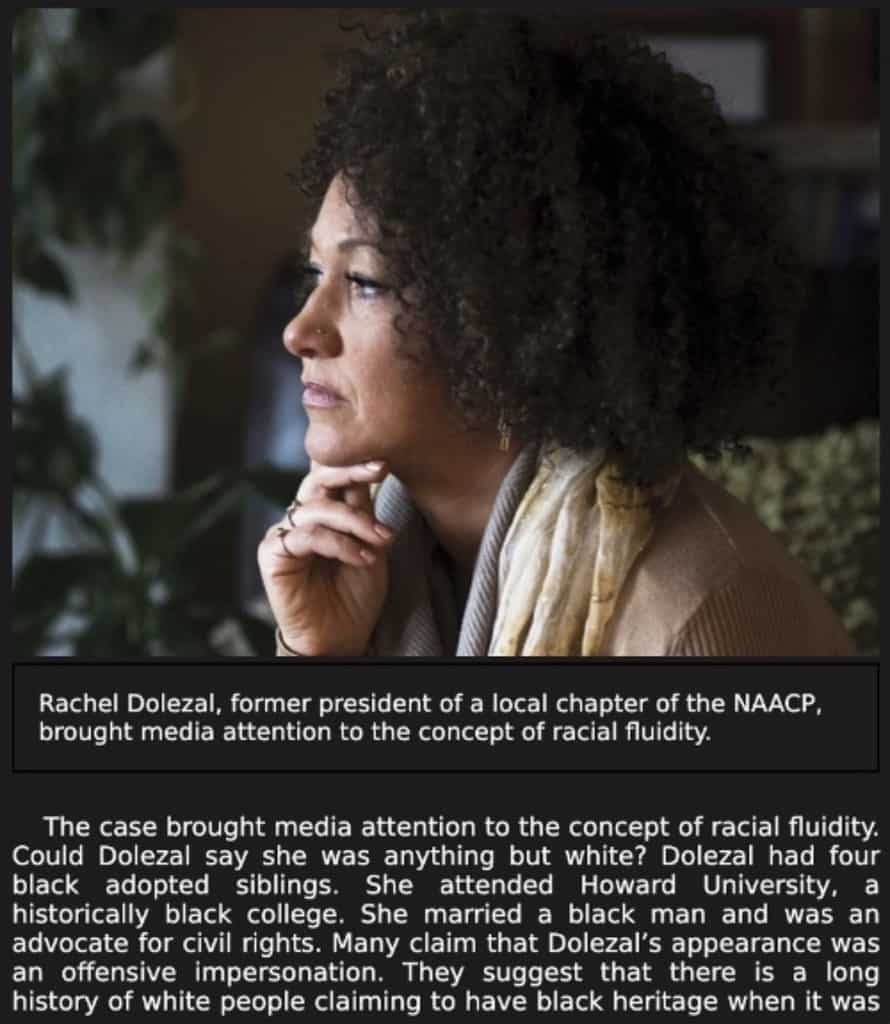
IFF received lists of books currently in circulation for five school districts (Idaho Falls, Nampa, Pocatello, West Ada, and Twin Falls). Across these districts, books contain:
Districts have many more books with inappropriate content in circulation than our report finds. As IFF has noted, students across the state may have access to the Idaho Digital E-Book Alliance (IDEA) database, which features other inappropriate and ideological books as well. The books listed for Twin Falls only include those obtained by the school district in the last seven years. The books listed for Pocatello, Nampa, West Ada, and Idaho Falls came in response to records requests for books purchased in the last three years. Older inappropriate books may well be in the library.
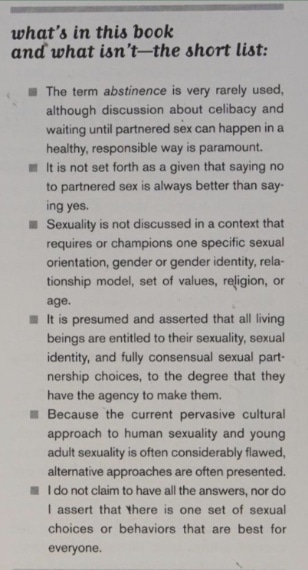
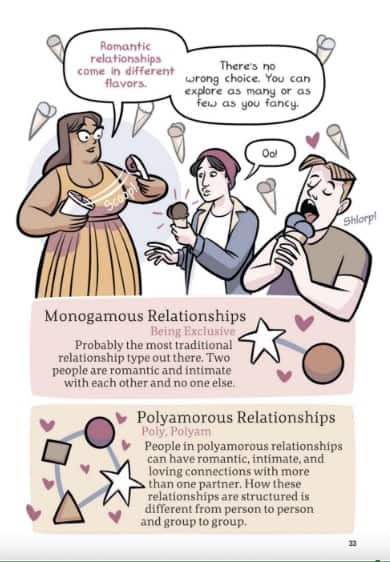
Moreover, some books are lost. Nonetheless, their circulation raises questions about how many students had access to them and why they were acquired in the first place. For example, West Ada has acknowledged that it bought "Let’s Talk About It: The Teen's Guide to Sex, Relationships, and Being a Human" in part because it saw reviews noting the book’s instructions on masturbation and non-judgemental approaches to polyamory, among other things. That book is listed as "recommended" on the IDEA website, which is "a statewide partnership between the Idaho Commission for Libraries (ICfL), public libraries, and school libraries with the goal of expanding access while reducing barriers to digital e-books and e-audio content."
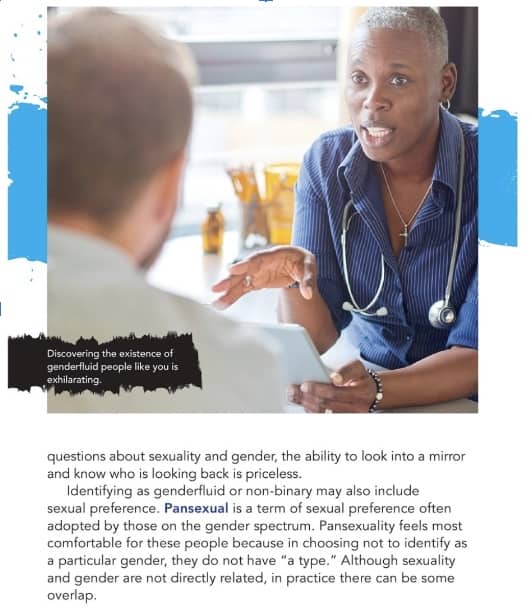
"Let’s Talk About It" is just one of many Idaho library books that have been challenged in other states. For example, a Florida school district is currently in the process of removing a book titled "All Boys Aren’t Blue." Circulated in Idaho Falls’ Emerson Alternative School, the memoir-style book boasts a trifecta of unscientific ideas about gender, sexually explicit content, and anti-police sentiment. In it, author George Johnson recounts some of his sexual history, including an incestuous incident in which his older cousin molested him.
Another highly controversial book, "Beyond Magenta," features a story about a minor who, "from six [years old] up," was "perform[ing] oral sex" on "other guys in my neighborhood." It adds that "pedophiles" used to "hit on this person" and "touch themselves" while saying, "Come here, sweetie." That book has circulated in four West Ada schools. The book "Stamped," which was co-authored by noted "anti-racist" Ibram X. Kendi, has also encountered national scrutiny. Kendi has explicitly endorsed racial discrimination. Multiple books, in advancing gender "fluidity," also refer readers to Kimberlé Crenshaw, one of the progenitors of critical race theory, and her theory of intersectionality. The books of Kendi and Reynolds have been circulating in more than a dozen schools in Twin Falls and West Ada. Kendi's "Anti-Racist Baby" is also available as an audiobook through the IDEA database.
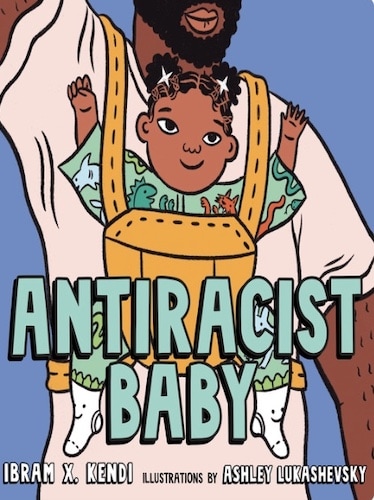
Meanwhile, the IDEA database continues to offer "This Book is Gay," which contains detailed instructions for how to engage in sexual activity. On IDEA, the description informs readers the book contains information on "[h]ow to flirt" and the "ins and outs of gay sex." Author Juno Dawson offers explicit advice on "toys and strap-ons," "bumming" ("...in the absence of a vagina, gay and bi men make excellent use of the back door"), and "good" vs. "bad" versions of hand jobs.
A section titled “boy-on-boy sex” reads: “Up your bum, you have a prostate gland which feels nice when massaged. The anus is also sensitive and responds to being played with.” Both books (“Let’s Talk About It” and “This Book is Gay”) also encourage readers to explore their sexual interests with strangers on the internet. In the case of “This Book is Gay,” it contains step-by-step instructions for using sex apps. And bath houses? Dawson has this to say: "People ... pay some money to enter and then have a bit of a sauna and some random sex. Again, this is fine as long as you're safe."
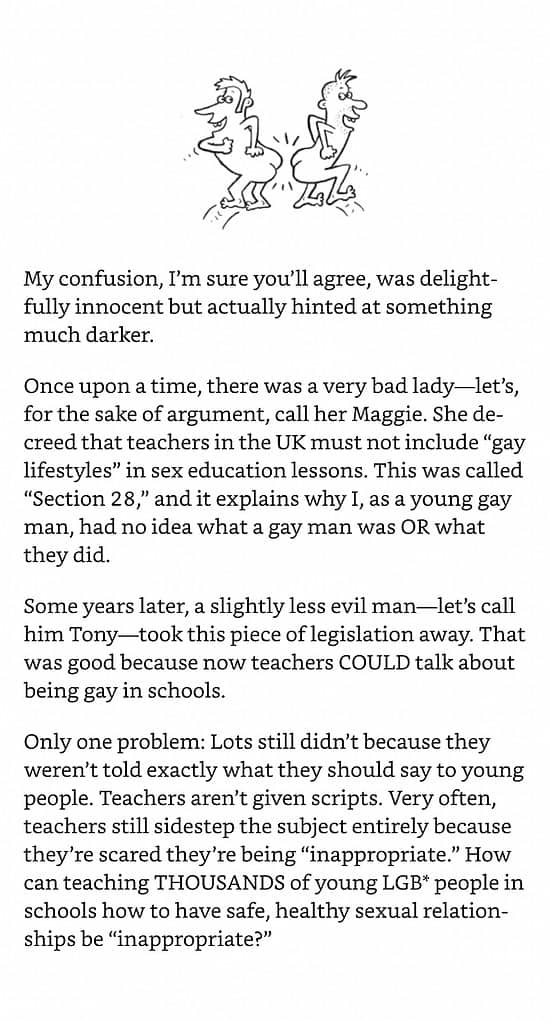
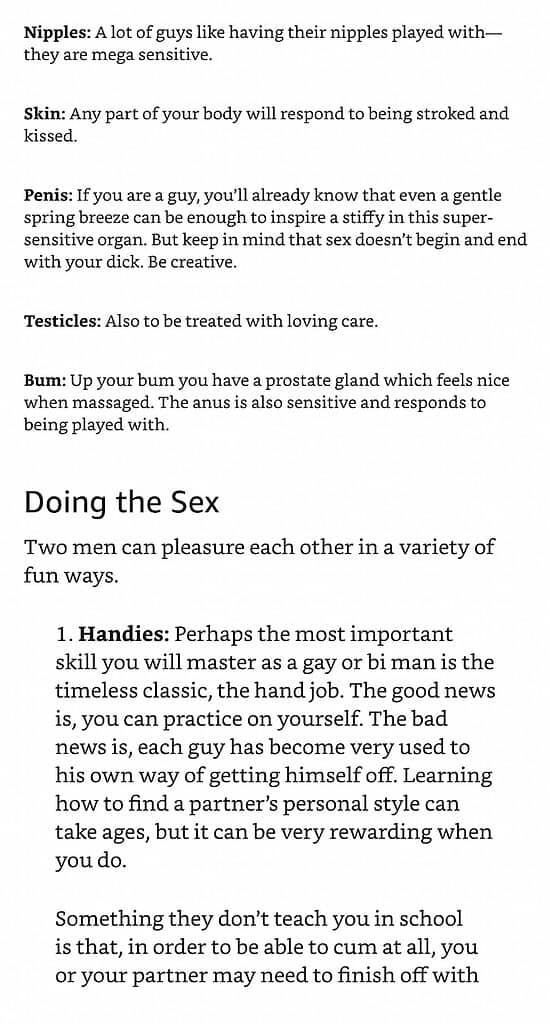
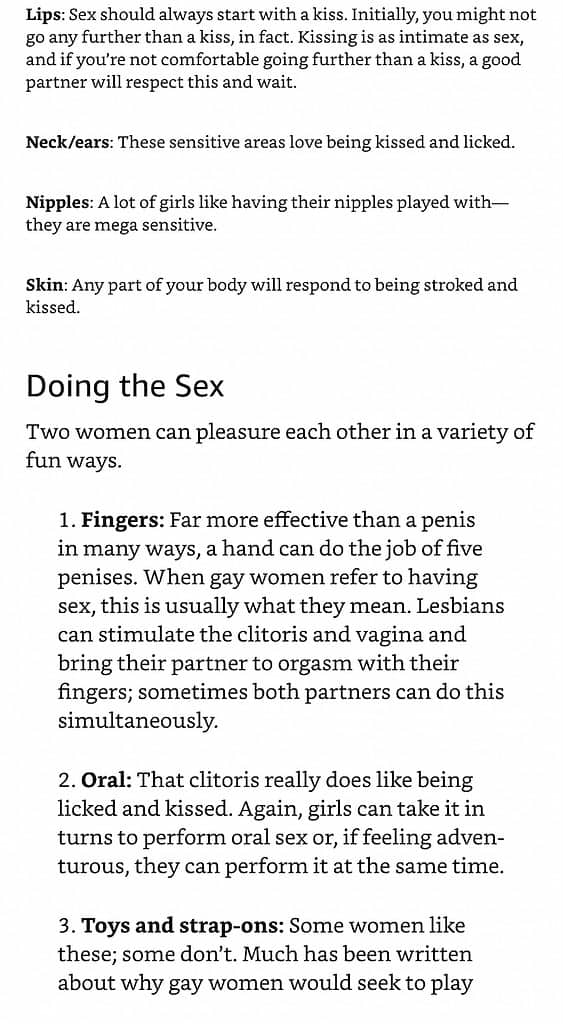
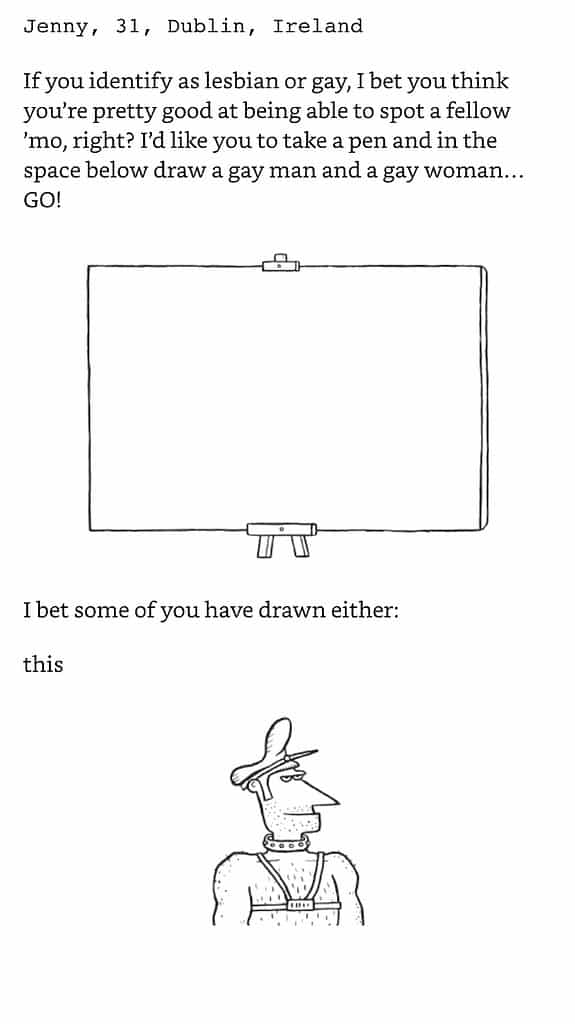
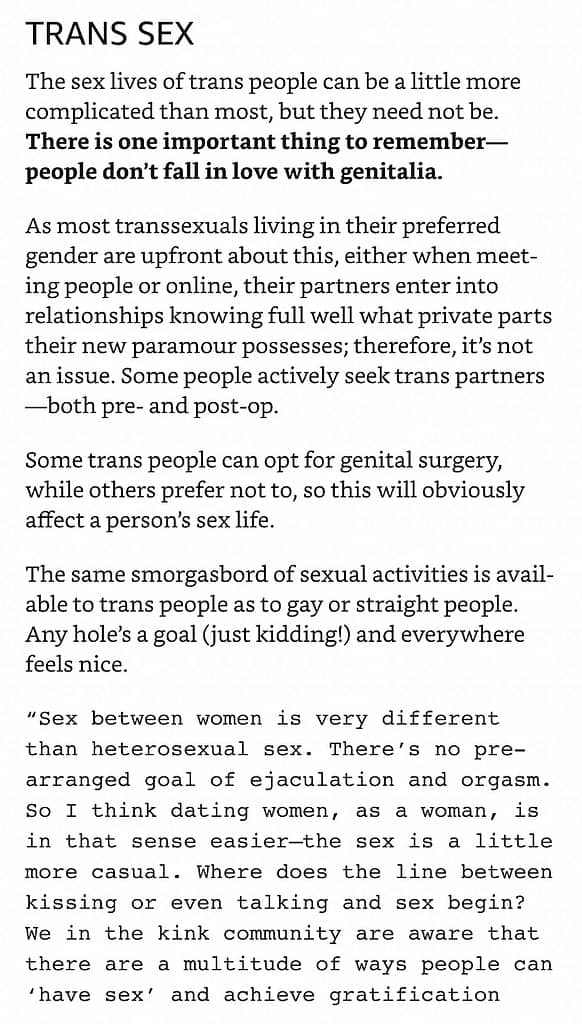
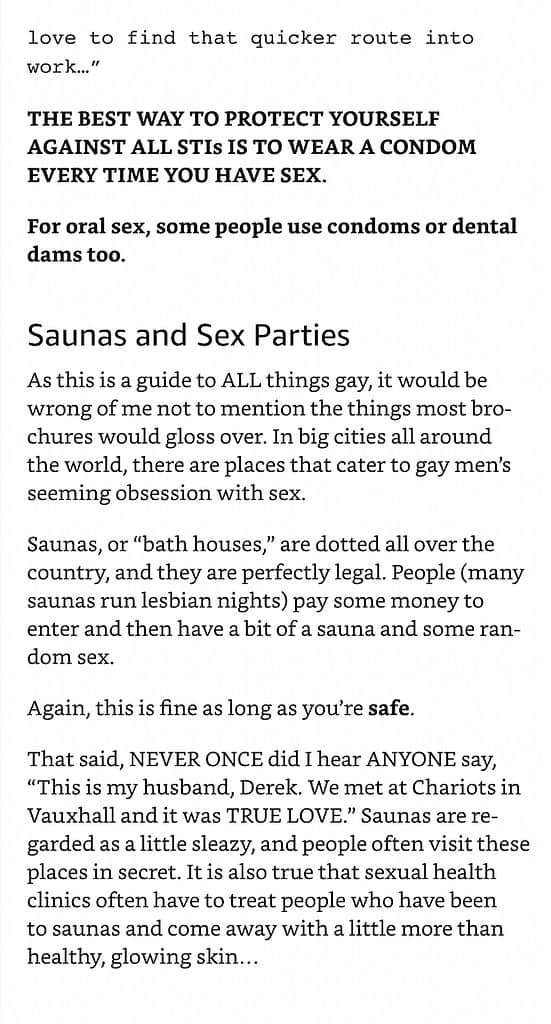
Dawson, who previously announced an attempt to become a "transgender woman," intermingles a playful tone which comes in handy when explaining "trans sex." "Some trans people can opt for genital surgery while others prefer not to, so this will obviously affect a person's sex life," Dawson says. "The same smorgasbord of sexual activities is available to trans people as to gay or straight people. Any hole's a goal ('just kidding!') and everywhere feels nice." IDEA has the updated edition of "This Book is Gay," which features a foreword with author David Levithan describing it as a "handy guidebook." His books have been recommended by left-wing groups and have circulated in Pocatello, Twin Falls, West Ada, and Nampa.
From elementary to high school, Idaho libraries feature content that is explicit in its description of sexual activity and its opposition to staying within the bounds of monogamous, heterosexual marriage. Several books stigmatize virginity itself as a social construct that hinders a full-throated pursuit of sexual activity. It is also largely ignored and given less space than advice on how to pursue varying activities such as anal and oral sex.
"S.E.X: The All-You-Need-to-Know Progressive Sexuality Guide to Get You Through High School and College" promotes the concept of friends with benefits and goes so far as suggesting that “what it means to be a virgin really can only be defined by you.” It also suggests readers “might give some thought to abandoning the concept of virginity altogether.” The book adds: “However nicely, or in different contexts, it is presented by some now, it is an idea that, throughout history, has been sexist, heterosexist, classist, and oppressive, and virginity as an ideal has actually done the opposite of what many would aspire to do: it has devalued sexuality and intimacy–and women–rather than making them more valuable.” That book has been circulating in Twin Falls’ Magic Valley High School. It also that terms for sexual identity can include “kinky, polyamorous, slut, asexual, vanilla, tutti-frutti, and so on.”
Libraries ideally foster an environment for critical thinking by providing multiple perspectives that are age appropriate. Instead, many of these books serve as virtual manifestos or guidebooks for living alternative sexual lifestyles. Rather than providing adequate balance, they often disparage opposing viewpoints like those coming from religious conservatives; accusations of "cissexism" and "heterosexism" abound. Liberal policies and rulings like Gavin Grimm’s "victory" in a district court are celebrated while policies like the Trump administration’s interpretation of Title IX are cast in a negative light. Ditto for policies restricting bathroom use and athletic involvement to biological sex.
This shouldn’t be surprising as some are written by activists like Kelly Huegel ("GLBTQ: The Survival Guide for Gay, Lesbian, Transgender, and Questioning Teens"), who has worked for PFLAG, and Kathryn Gonzales ("Trans +"), who has worked both for Out Youth and as co-chair for the “Central Texas Transgender Health.” It’s no wonder that many of the books in Idaho libraries have won "LGBTQ+" awards or been recommended by left-wing groups like GLSEN.
Guides/handbooks:
Virginity isn’t the only boundary assailed in Idaho libraries, either. In attacking old taboos, these books effectively erect new ones. Besides ideas surrounding consent and general discomfort, the primary boundaries appear to be boundaries themselves, which are routinely torn down to make way for whatever path might draw one’s libido. In this way, sexual interests subordinate norms and ethics while primacy is placed on arousal and stimuli.
"GLBTQ," which contains claims like someone is "born a trans person," suggests that adopting or realizing alternative sexual interests is an "awakening" while "coming out" is a way to "affirm yourself." Meanwhile, "physical modifications" are presented as the sort of "gender identity disorder" treatment that "help bring one’s body into harmony with one’s emotional and mental self – not vice versa." "Trans+: Love, Sex, Romance, and Being You" shows some of libraries' twisted values as well. Acquired and circulated in West Ada’s Centennial High School, that book offers advice on sexual activity and orgasms.
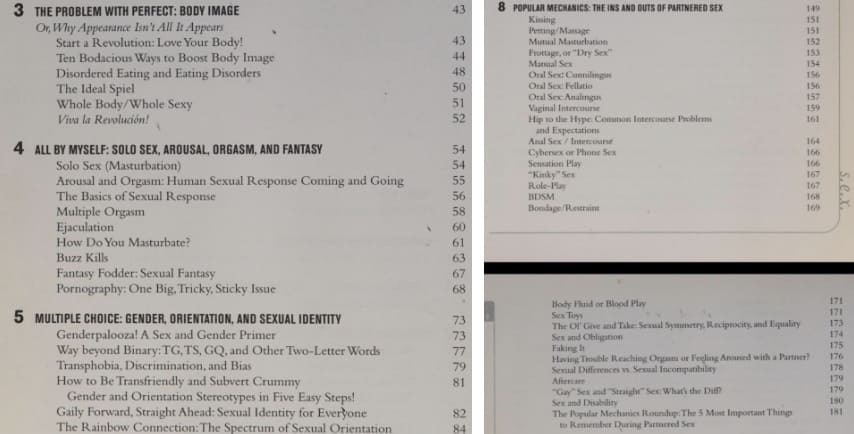
It asks, "So How DO Trans People Have Sex" before offering a road map-type graphic for guiding oneself through the use of sex toys, oral sex, anal sex, kissing, and mutual masturbation. Other books like "S.E.X." contain claims like "masturbation is the bomb" and sections like "How do you masturbate?"
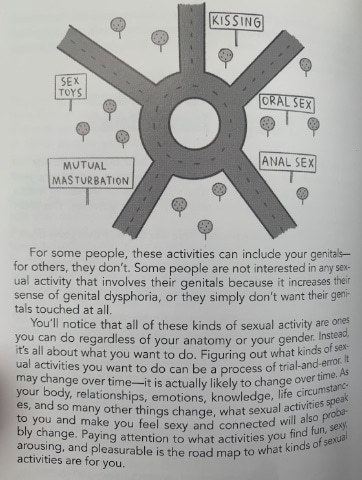
"Trans+" reads: "Paying attention to what activities you find fun, sexy, arousing, and pleasurable is the road map to what kinds of sexual activities are for you." The authors also inform readers of slang for oral sex ("sometimes called giving head, carpet munching, blow job, going down") and anal sex ("sometimes called butt sex, tossing salad, sodomy"). If readers are looking for information on sexual fantasies or how to stimulate multiple orgasms, "S.E.X." has sections on that as well.
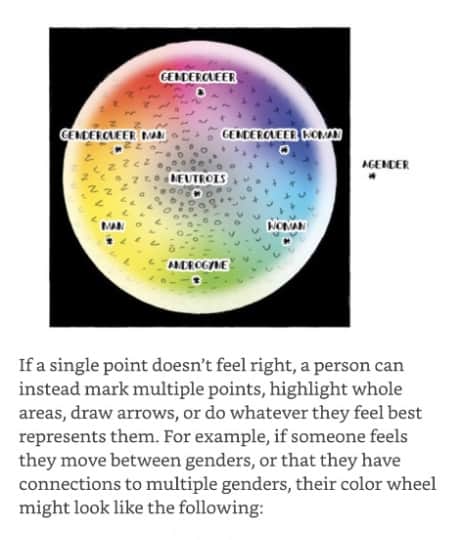
These books tell a lot about sexual activity, but they show a lot, too. Idaho law currently prohibits public entities from promoting pornography, but a loophole exempts school libraries, where it should apply the most. In effect, the law takes a neutral view of the most vulnerable viewing the material and pornography more generally.
It’s perhaps no wonder that Magic Valley High School has circulated a book that presents online pornography as a debate rather than something that people more generally — or even specifically children — should avoid. The book "Online Pornography" presents the topic as a debate. According to Amazon, it places "expert opinions in a unique pro/con format." Chapter titles include “Online pornography is not a moral problem" and "Children should not always be protected from online pornography."
Pornography, more generally, is considered an important part of sex education in the Planned Parenthood-endorsed curriculum spread throughout Idaho schools. So-called "porn literacy" isn’t mandated, and it’s unclear how it’s been embraced in various districts. But where reluctant school and health districts may omit that aspect of Planned Parenthood’s curriculum, libraries can pick up the slack.
"Let’s Talk About It" joins Planned Parenthood in admonishing uncritical viewership of pornography.
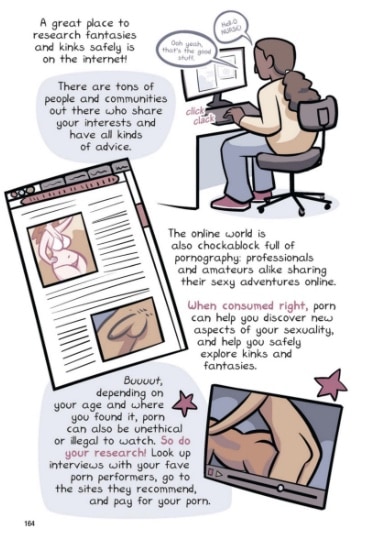
The digital version of that book is replete with inappropriate content. For example, one page shows a cartoon illustration of someone performing oral sex on another person near a studio light. Others depict anal or vaginal penetration by cartoon figures. Erika Moen and Matthew Nolan, the book's authors, start with a dedication "To whoever needs it, whatever your age," before delving into graphic instructions on how to engage in various sexual behaviors and consume pornography. Authors warns readers about watching pornography "uncritically" and failing to treat the performers with respect. The prior page includes yet another illustration of pornography in an internet window. It encourages readers to look up interviews with their favorite porn stars.
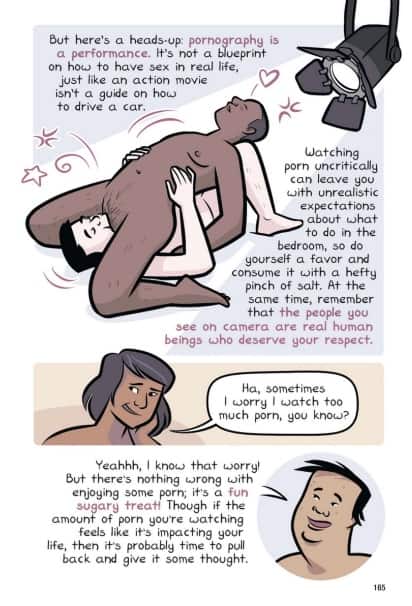
"The online world is chockablock full of pornography: professionals and amateurs alike sharing their sexy adventures online," it reads. "When consumed right, porn can help you discover new aspects of your sexuality, and help you safely explore kinks and fantasies. Buuuut, depending on your age and where you found it, porn can also be unethical or illegal to watch. So do your research! Look up interviews with your fave porn performers, go to the sites they recommend, and pay for your porn."
West Ada, along with Twin Falls and Pocatello, also circulated "Any Way the Wind Blows," which includes this scene between two male characters: "My cock is in his hip. He’s pushing his briefs off, he’s trying to stay under the blanket – I help him." In another section, the character Baz jokes with another character named Dev about "sucking cock."
"Well, if it isn’t Basilton Pitch. Did you take a break from getting your cock sucked and remember that you have friends and family?"
"Took a break from sucking cock, actually."
Public records requests showed that book circulating in the following Idaho schools: Canyon Ridge High School, Highland High School, Pocatello High School, Centennial High School, Idaho Fine Arts Academy, Eagle High School, Lewis and Clark Middle School, Lowell Scott Middle School, Owyhee High School, Renaissance High School Rocky Mountain High School, Sawtooth Middle School, Heritage Middle School Lake Hazel Middle School.
Two high schools in West Ada — Owyhee and Eagle — circulated the book “Red Hood,” which contains plenty of talk about sexual activity, derision of a “fucking incel [involuntary celibate],” and a lengthy sex scene:
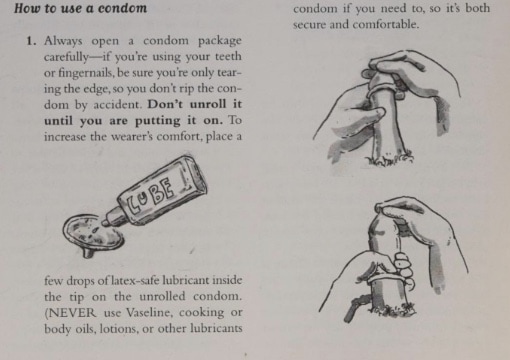
In describing the incestuous molestation he experienced, "All Boys Aren’t Blue" author George Johnson tells his former abuser: "There you stood in front of me fully erect and said, 'taste it.'" Johnson adds that "you began humping me – back and forth, back and forth – never penetrating me, though." Later in Johnson’s memoir, he also describes his sexual exploits during college while noting his perception of how his fraternity brothers understood a sexual encounter that left him in so much pain he needed Tylenol. "I had earned another gay badge of honor like it was the Boy Scouts or something," he says, before adding he was "in pain for nearly three weeks following that encounter."
That particular encounter was recounted in the following way: "He got on top and slowly inserted himself into me. It was the worst pain I think I ever felt in my life … He began his stroking motion. Eventually, I felt a mix of pleasure with pain."
Another encounter describes attempting to enhance his performance by acting like a porn star:
Idaho libraries have circulated books with graphic depictions of rape and self-harm as well. "Sold," which discusses human trafficking, contains the following scene: "Then he is on top of me, and something hot and insistent is between my legs. He grunts and struggles, trying to fit himself inside me. With a sudden thrust I am torn in two. 'Oh, yes,' he says, panting." That book has been circulating in Twin Falls’ O’Leary Middle School.
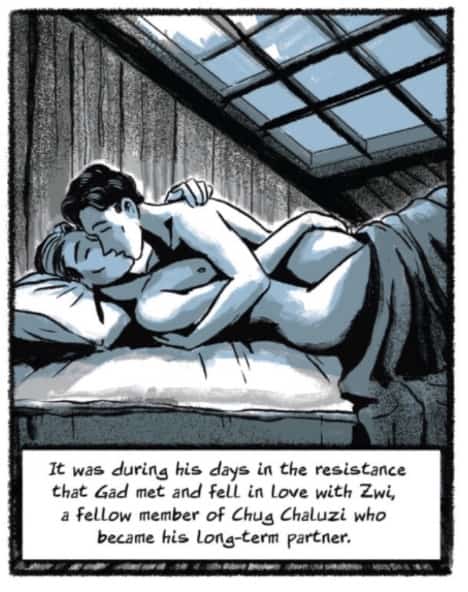
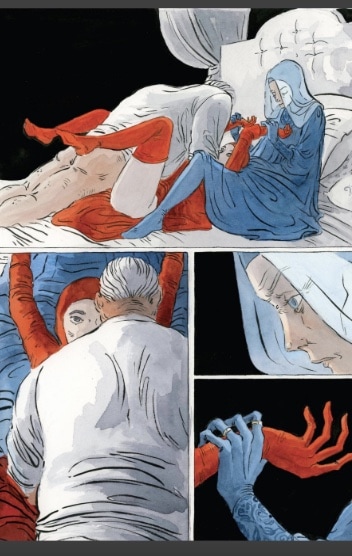
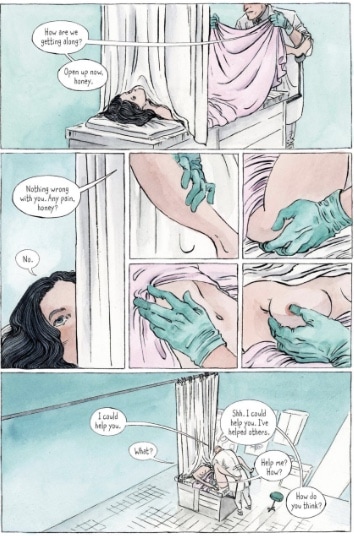
West Ada’s Centennial High School, Idaho Fine Arts Academy, and Owyhee High School each have circulated the graphic novel version of "The Handmaid’s Tale," which contains graphic scenes involving nudity and rape from the book’s dystopian universe. The original "Handmaid’s Tale," which the graphic novel is based on, has circulated through two Idaho Falls high schools (Emerson Alternative, Skyline), three Pocatello high schools (Century, Highland, Pocatello), and many more in West Ada.
Idaho Falls, West Ada, Twin Falls have each also circulated "Speak: The Graphic Novel," which contains a non-graphic rape scene and an illustration of wounds from self-cutting. The original novel has been available for a long list of schools in Twin Falls, Pocatello, and West Ada.
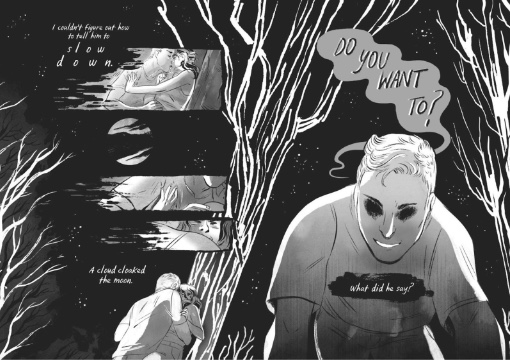
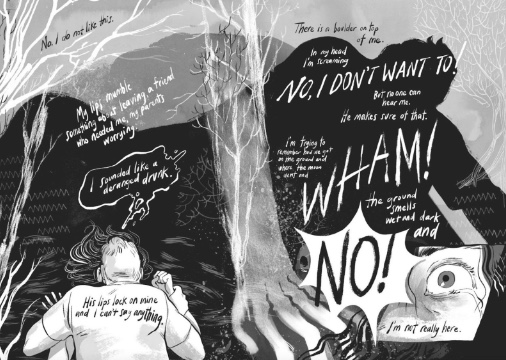
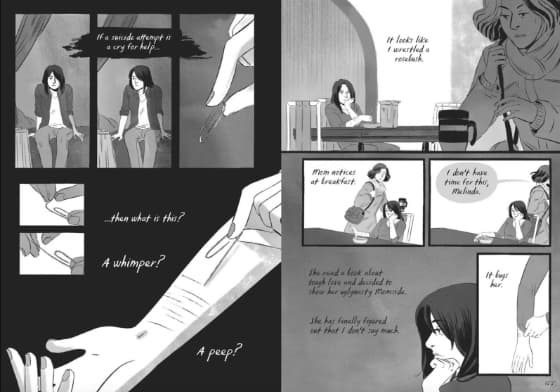
Some of these books’ illustrations also aid in the description and promotion of various sexual behaviors. In a section on masturbation, "Let’s Talk About It" offers a cartoon anus while warning readers: "And don’t forget–everybody’s got a butt!"
"After the train has left the station (so to speak) and you’ve had a chance to wash up or douche back there, you can have an assload of fun with a healthy heaping of lube," write the authors, whose webcomic appears to use a buttplug as its logo. "Apply broad pressure to the outside of the entrance. Circle your butthole with your finger, pausing any time a spot feels extra good. Dip just the tip of your finger inside. Let your anus pull it in when it’s ready, instead of forcing it."
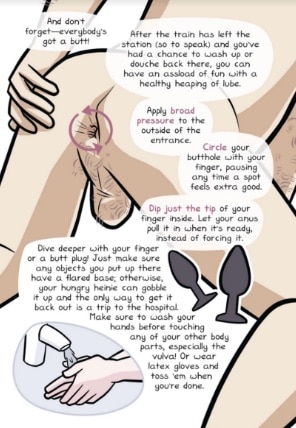
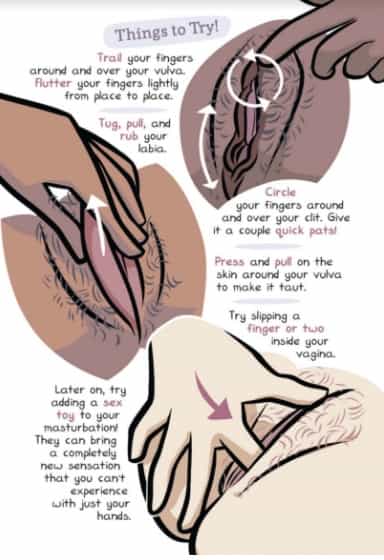
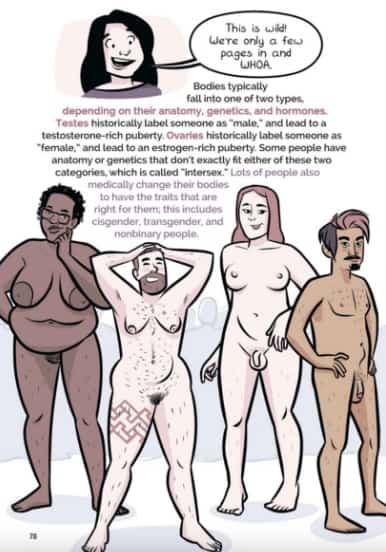
"Dive deeper with your finger or a butt plug! Just make sure any objects you put up there have a flared base; otherwise, your hungry heinie can gobble it up and the only way to get it back out is a trip to the hospital. Make sure to wash your hands before touching any of your other body parts, especially the vulva! Or wear gloves and toss ‘em when you’re done." West Ada has offered a series of confusing and sometimes contradictory statements regarding the circulation of this book. It has said that Centennial High School's librarian purchased it for the school and then took it out of circulation after determining it was inappropriate for students.
"S.E.X." and "Let’s Talk About It" encourage "kink" and offer detailed instructions for how to stimulate sexual pleasure. "S.E.X.," for example, features tips on practices like BDSM ("some people self-restrain during masturbation. Others use rope or cord[...]"), how to "talk dirty" for cybersex, analingus, and blood or body fluid play. One portion describes how "some people enjoy any number of body fluids sexually: ejaculate, vaginal fluids, menses, urine or blood." It goes on to describe "golden showers" and notes that "fluid play may be enjoyable because a certain intimacy or sacredness is experienced in 'fluid-bonding.'"
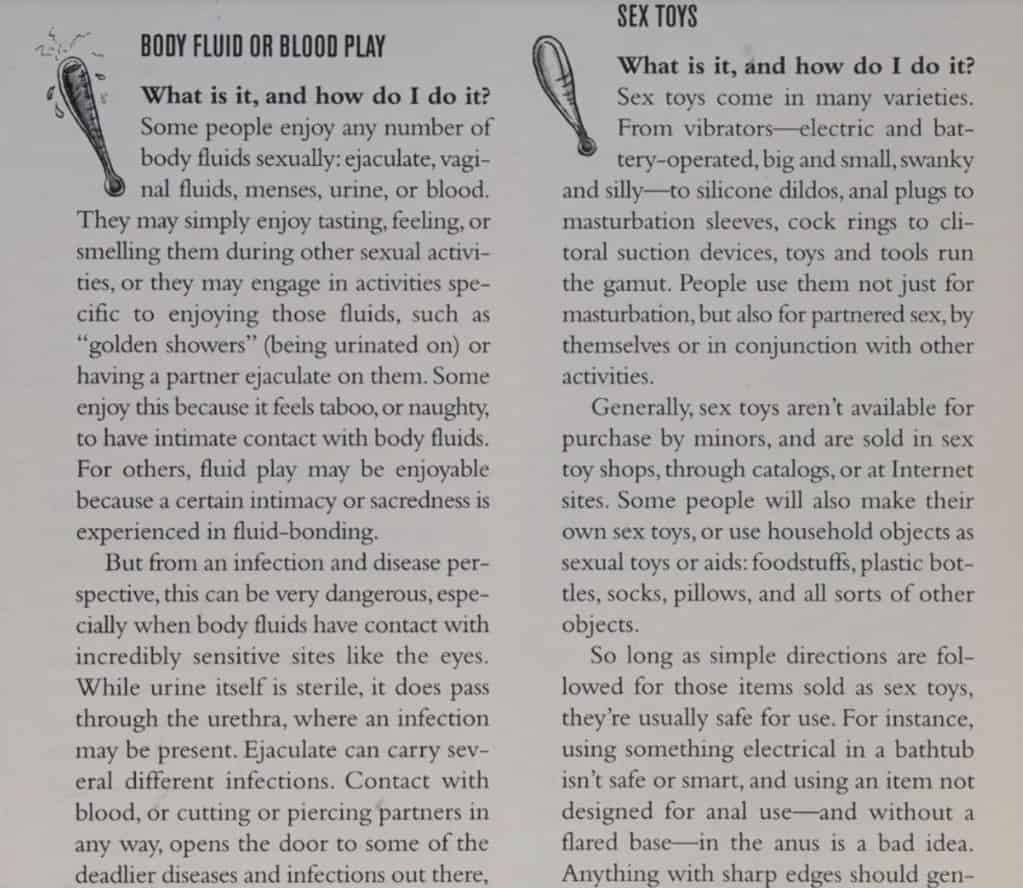
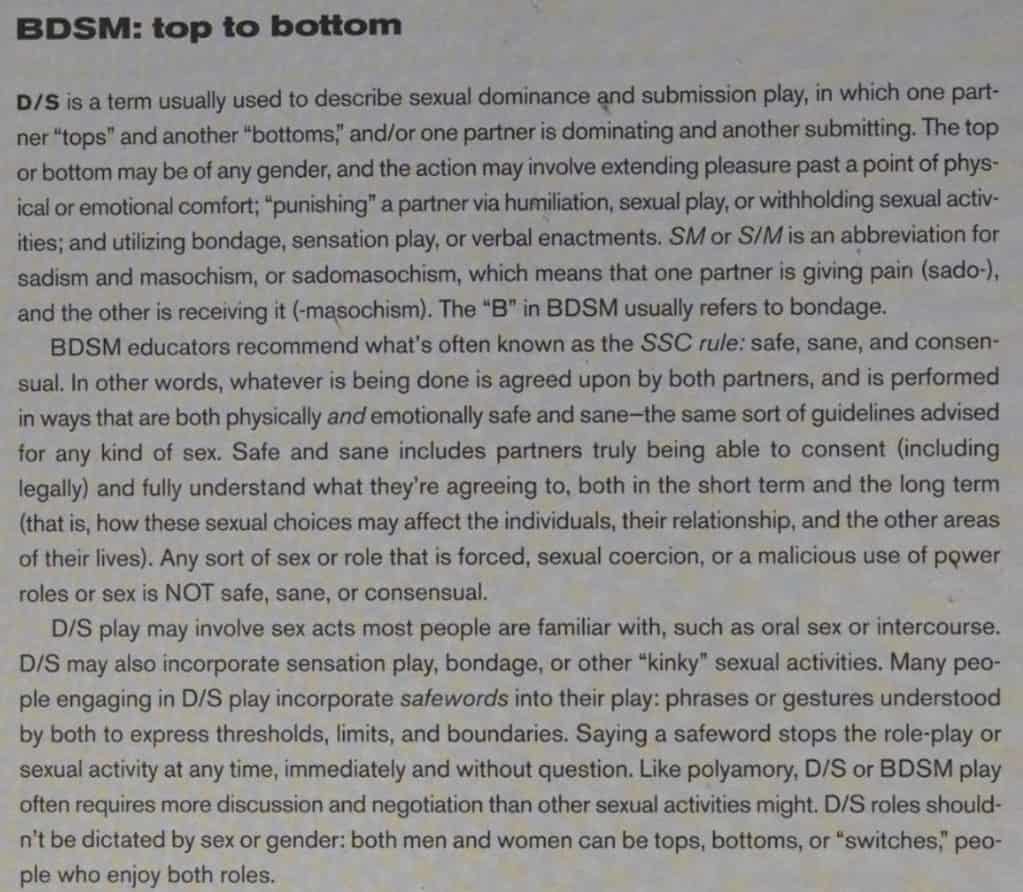
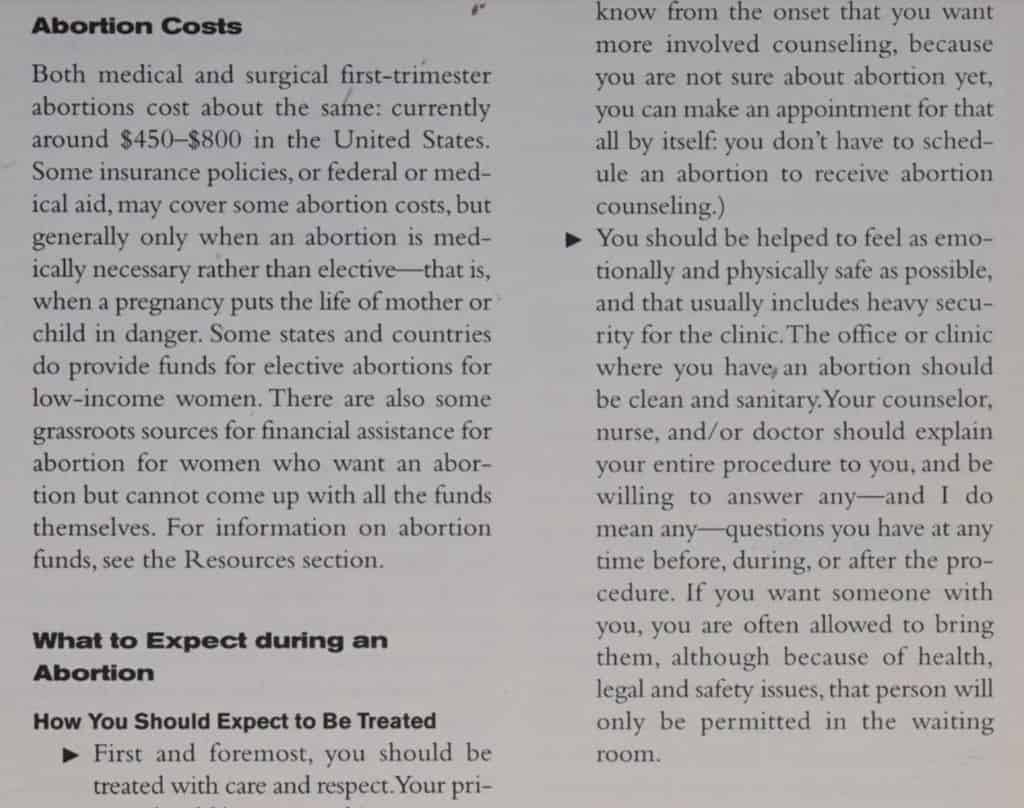
If students were looking for information on "how DO trans people have sex," both "Trans+" and "Trans Mission: My Quest to a Beard" had them covered. "Trans Mission," which has been circulating in Pocatello’s Century and Highland high schools, discusses harnesses and "hard packers," which are "used for sex," before transitioning into a discussion about "stand-to-pee" devices: "Then you have 'stand-to-pee' or STP devices, which are used to stand to pee. Some double as packers that you can wear all the time, and others are basic as a little funnel with a tube. I have an STP that is a three-in-one – you can pack, pee, and play – which is perfect for trans guys with bottom dysphoria, because you can use it for everything a penis does." As with many of these books, "Trans Mission" is available on IDEA as well.
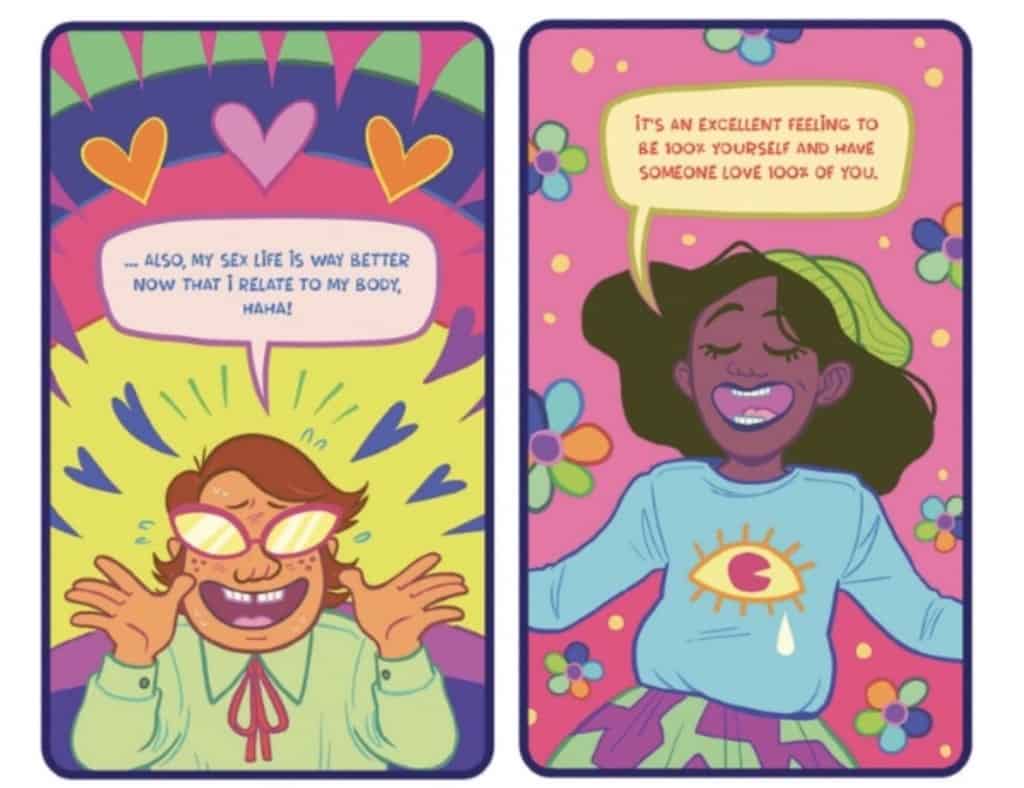
Bertie, as an author and social media personality, does a lot to highlight the sexual and "genderpalooza," as "S.E.X." describes it, that comes with the left-wing books in Idaho libraries. A self-described "pansexual," Bertie has figured prominently in U.K. media coverage of "transgenderism" and is somewhat of a dual celebrity-"transition" inspirer.
In 2019, The Times London reported on five physicians who, "as a matter of conscience," left the National Health Service’s Gender Identity Development Service, which recently shut down and was accused by BBC reporter Hannah Barnes of maltreating kids with gender conflicts. One of the major allegations her book lobs is that the clinic effectively caved to left-wing activist pressures to provide medical interventions like hormone-manipulating drugs at younger and younger ages. “Coping with Gender Fluidity,” which has been circulating in Idaho Falls, directs readers to the Gender Management Service (GeMS) at Boston Children’s Hospital.
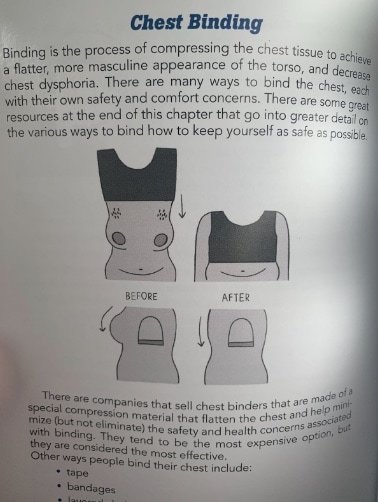
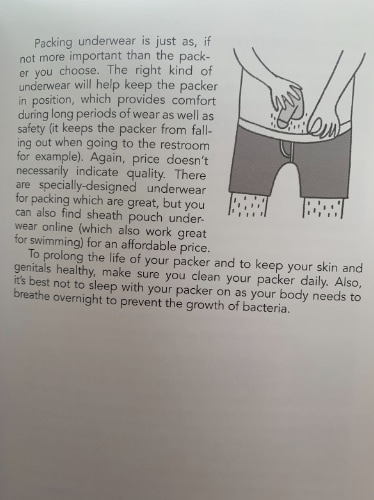
Reporting on a physician who left over the application of those drugs, The Times noted: "Another clinician described how youngsters entered his room enthusing about Alex Bertie, a transgender YouTuber, and My Life: I Am Leo." The YouTuber’s channel features videos like "FTM [female-to-male] Transgender 5 Year Comparison" and "18 DAYS POST OP (Q+A)." Another video shows Bertie fielding questions about, among other things, potential interest in creating an OnlyFans account (Bertie has considered it, but no and "power to" those who do), sexual fantasies (Bertie had a "weird sex dream" about Ted Danson's character on "The Good Place"), and surgically implanting "balls."
Like many other Idaho books on gender, Bertie’s holds up YouTube and the internet more generally as a source of information for individuals experiencing confusion over gender. For understanding the power of web sources, it might be worth reading the comic "LiveJournal Made Me Gay," which has been circulating in West Ada’s Centennial High School. Bertie, according to "Trans Mission," looks up to Ash Hardell, who authored a book circulating in West Ada and espousing a radical disintegration of sexuality and gender.
If you’ve kept up with the gender debate, you might have seen the "gender unicorn" with its fragmentation of sexual attraction and other facets of one’s identity. What you may not have encountered is the various spectrums promoted by Hardell, who goes so far as to describe gender as an "infinite universe" that sometimes "feels like a bursting colorful galaxy."
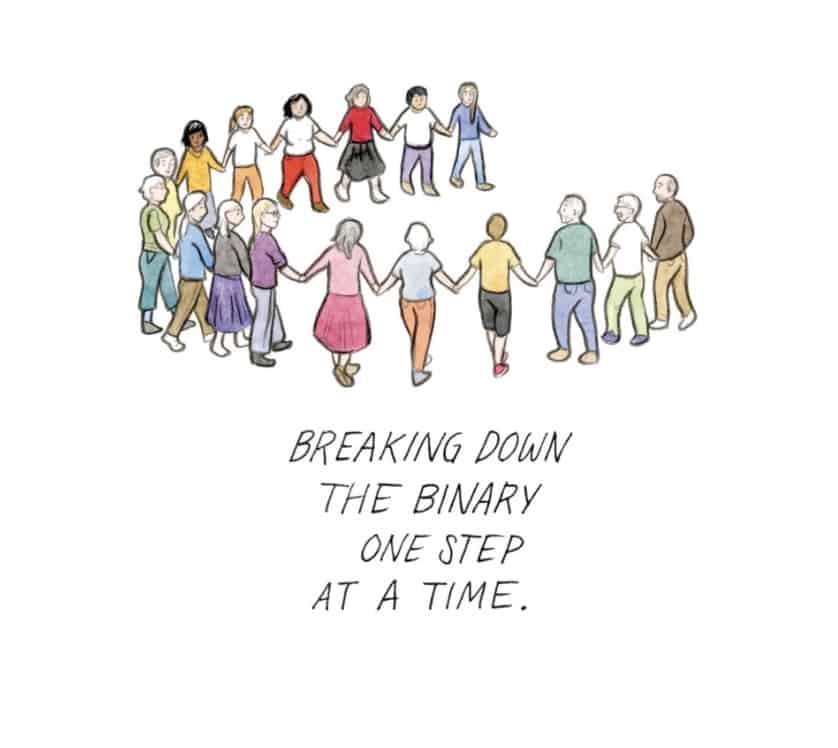
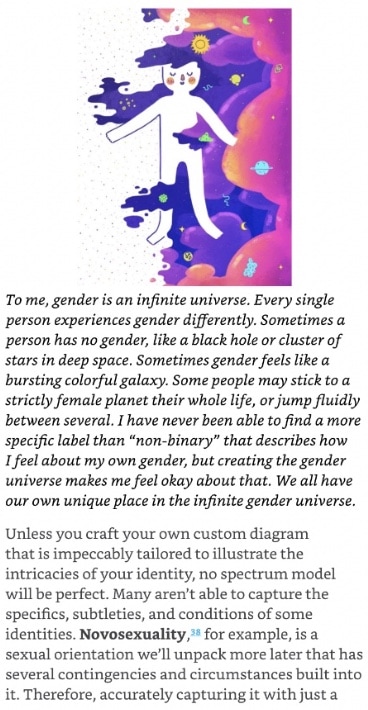
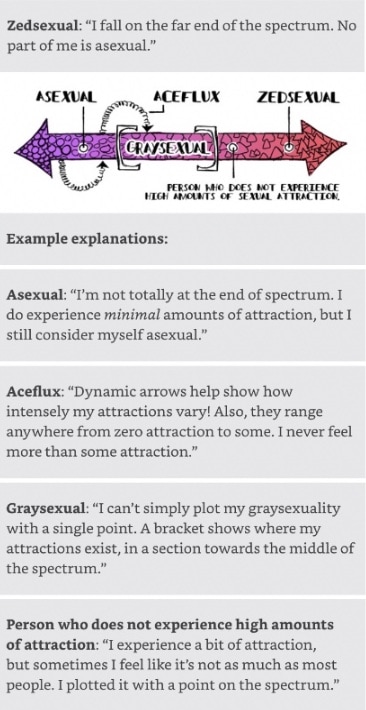
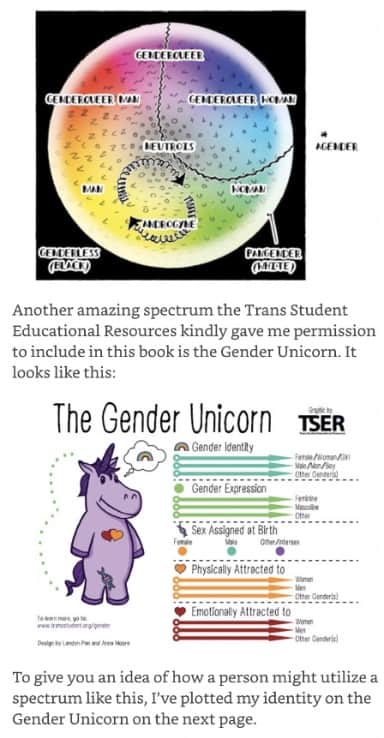
The more well-known categories of "transgender" and "pansexual" are relatively boring when compared with the categories in Hardell’s "The ABC’s of LGBT+," which has circulated in West Ada's Eagle High School, Lowell Scott Middle School, and Rocky Mountain High School. That book includes identities like "zedsexual," "novosexual," "graysexual," and "aceflux."
It may be confusing and seemingly impossible to decipher how one might approach such a broad universe of gender and sexual identities. But library books, like "The Times I knew I was Gay" (Pocatello/West Ada), provide tips on determining those while some even offer detailed questionnaires. At a society-wide level, sexual identity has long been grounded in biology and gender norms that proceed from that. That’s clearly a problem for Idaho library books, some of which oppose that tradition. "S.E.X.," at one point, laments that gender norms may determine it’s not "'manly' for men to enjoy receptive anal sex."
Gender ideology itself is fraught with contradictions and intellectual incoherence, and these books seem to contradict one another in alluding to the differences between sex and gender. Besides outright espousing ideological views, one of the primary ways Idaho libraries nudge kids towards sexual radicalism is by exalting figures like Bertie and Hardell, who both advance and exhibit warped ideas about identity. Sometimes this can occur with groups like the Mattachine Society (promoted in "Be Gay, Do Comics") started by Harry Hay, a noted supporter of the North American Man/Boy Love Association (NAMBLA). Nampa, meanwhile, has circulated "Pride: The Story of Harvey Milk and the Rainbow Flag," which has encountered challenges in multiple states.
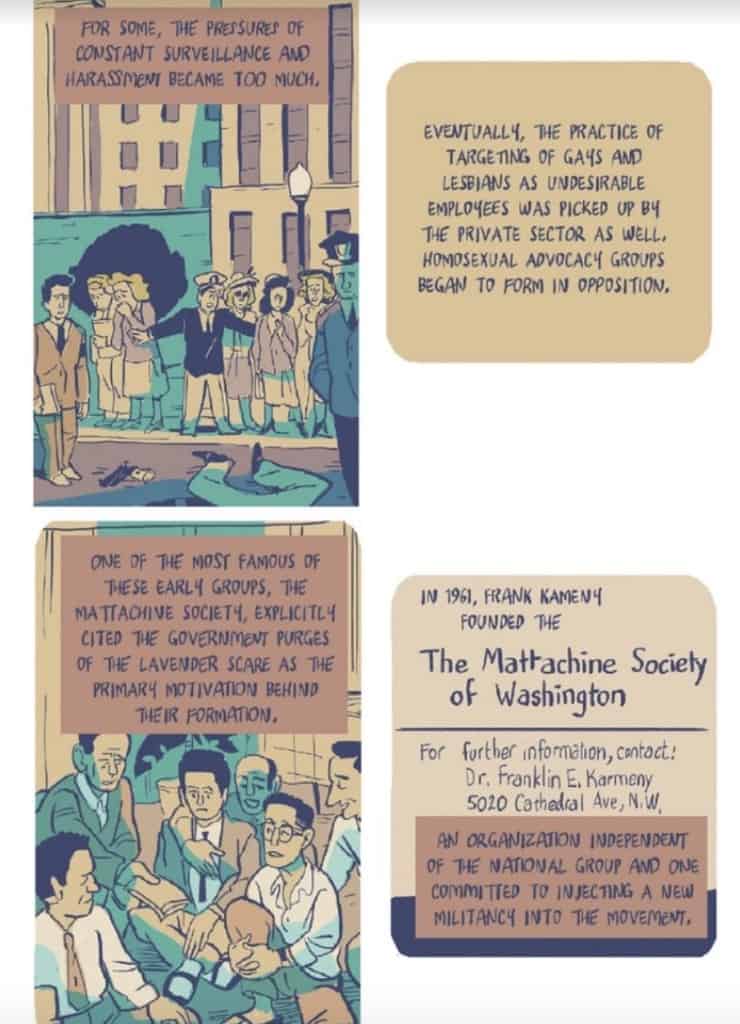
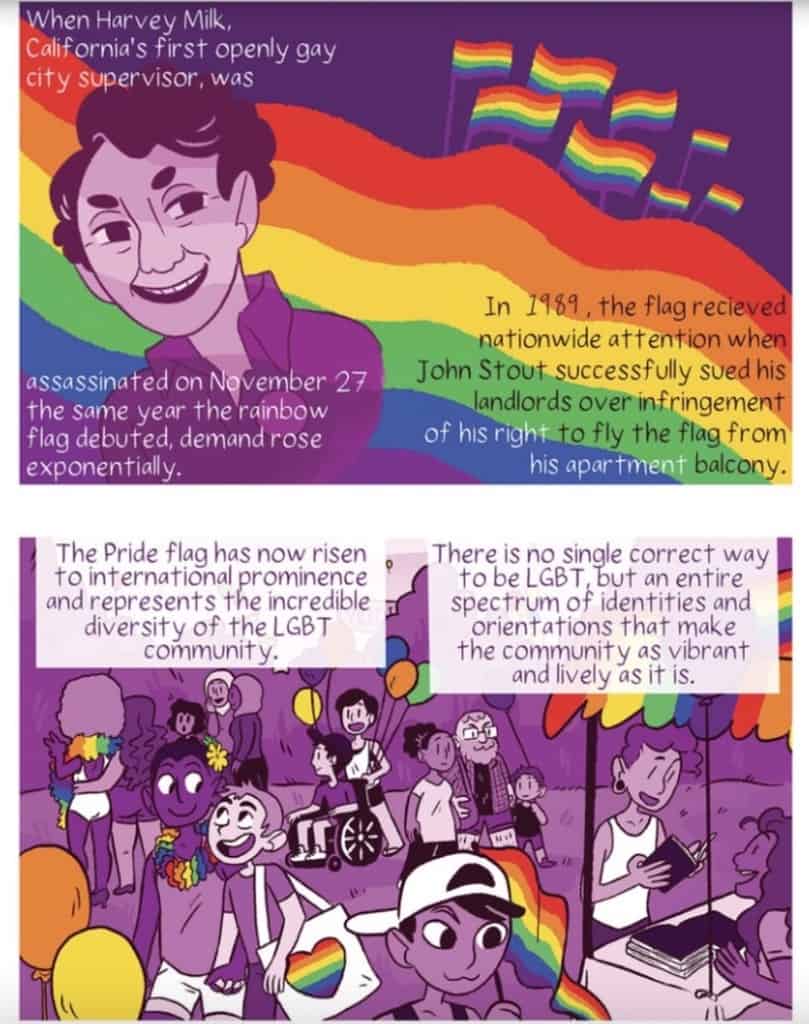
Twin Falls has also circulated the comic-style book called "Super Late Bloomer: Early Days" depicting the process of "transition" for the author. That particular book discusses using a "gaff" or device used to suppress the appearance of male genitals in clothing, describes looking like a boy as "hell," censors the author’s male name, suggests dysphoria stems from "internalized transphobia," and discusses transferring "reproductive material to a long-term storage facility." This shouldn't be surprising as "transition"-related interventions can result in sterilization.
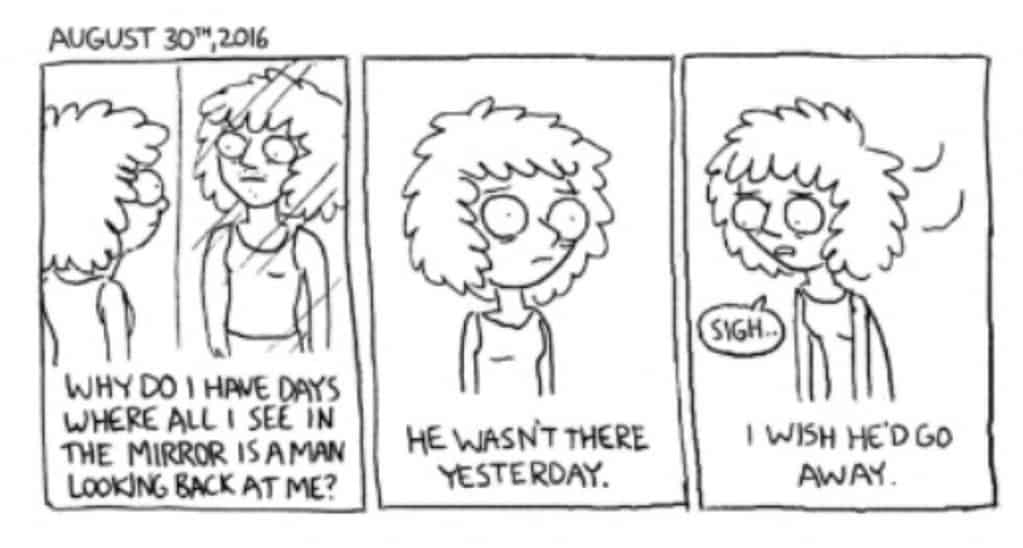
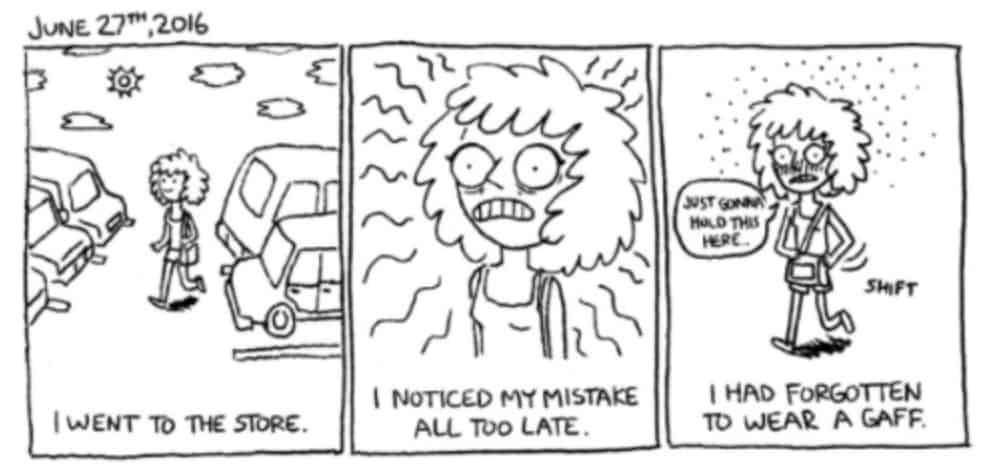
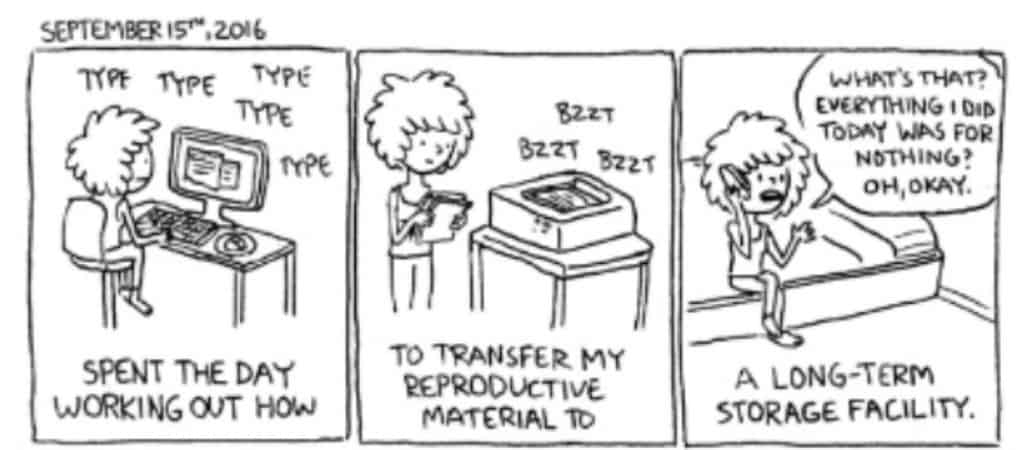
As the left-wing GLAAD notes, "representation" isn’t merely about acknowledging varying experiences. GLAAD, which seeks "cultural change," says representation is about "changing hearts and minds." That’s why it’s noteworthy when schools promote "agender" characters (e.g. “The 57 Bus,” circulating in Twin Falls, Pocatello, Idaho Falls, and West Ada), homosexual relationships, and characters pursuing gender "transitions." Gender-related books like "Super Late Bloomer" tend to be specific in describing "transition" attempts, effectively giving kids practical advice or examples for their own "transition."
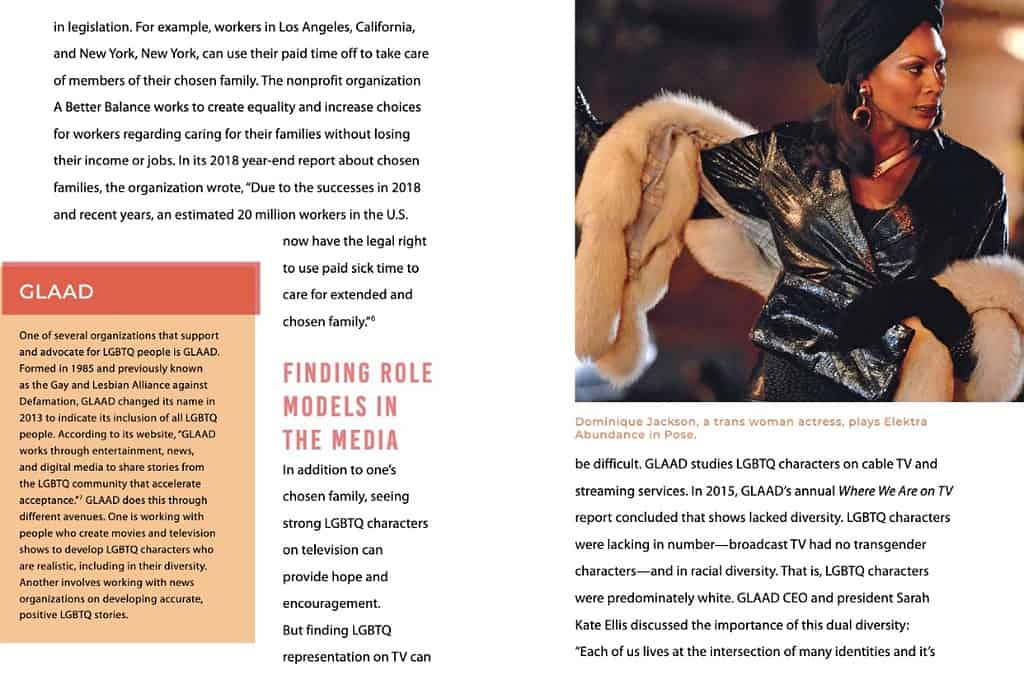
IDEA currently has 24 titles (some duplicates) tagged as "LGBTQIA+ (nonfiction)" and 300 under "LGBTQIA+(fiction)." Those include books like "Martin McLean Middle School Queen," and "Melissa," which author Alex Gino renamed to honor the main, "transgender" character. That book has won the Lambda literary award, the Children's Stonewall Award, and the Children's Choice Book Award.
It's unclear how accurate that tagging system is, however, given that a book that is clearly "LGBTQIA+" fiction isn't tagged as such. IDEA marks "When Aidan Became a Brother" as "juvenile fiction" and "picture book fiction" even though it's about a young girl thinking she's a boy. Among other "honors," it won the "Stonewall Book Award," has been included in the American Library Association Rainbow list, and was promoted by the radical Human Rights Campaign (HRC).
Some books aren’t as explicit about promoting an "LGBTQ+" ideology but nonetheless have been recommended as resources for that purpose.
For example, "Red: A Crayon’s Story" may seem like a bland story about a red crayon that wants to be another color. It’s been recommended by Feminist Books for Kids list of "picture books with trans and non-binary characters" and the Trans and Non-Binary Aid Society. Hall’s book has been circulating in 17 elementary schools across Twin Falls, Idaho Falls, Pocatello, and West Ada. It’s also been circulating in three Idaho middle schools and one high school. Todd Parr's "It's Okay to Be Different" seems innocuous but has been recommended by HRC, which has promoted downright bizarre ideas like referring to a vagina as a “front hole.” That's probably because it includes a page that tells kids "It's okay to have different moms" and "It's okay to have different dads." In 2012, HRC announced it was collaborating with Parr in line with its "Welcoming Schools" program, which has also been promoted by "Growing Up LGBTQ."
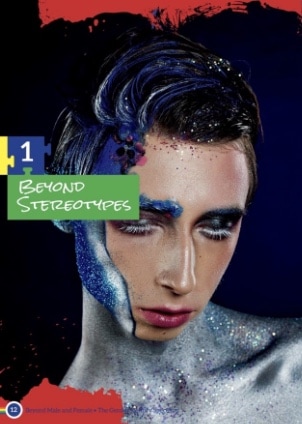
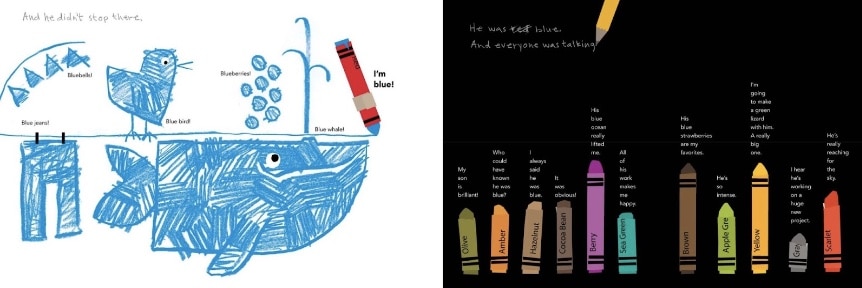
Another is "Julián is a Mermaid," which tells the story of a boy who embraces feminine attributes and dresses up like a “mermaid.” That book has been circulating in several elementary schools (Nampa’s Central Elementary School, West Ada’s Willow Creek Elementary School, and Pleasant View Elementary School). GLSEN included it on its National Student Council 2021 Elementary School Book List.
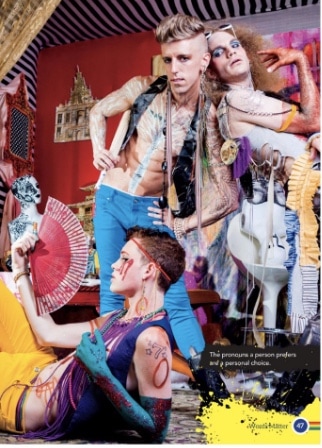
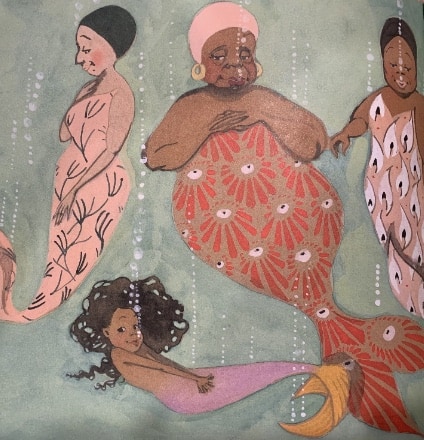
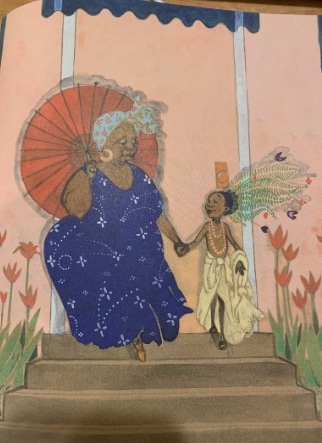
Pocatello’s Highland and Century High Schools have also circulated another handbook-type guide called "Gender Identity: Beyond Pronouns and Bathrooms." That book celebrates numerous “pioneers,” including Cher’s "son" Chaz Bono. Another book — "Queer, there, and everywhere: 23 people who changed the world" — has circulated in Twin Falls, Pocatello, and West Ada. Written by Sarah Prager, that book declares "diversity of queerness" is "impressive," hails attempts to make surgical "transitions" available, and prominently mentions the sexual habits of people who, among other things, indulged in orgies and generally promiscuous behavior.
One of those was the Roman emperor Elagabus who is mentioned as trying to change genders, "married five women and two men," and pretended to be a concubine while setting up the palace as a brothel. In describing Elagabus’ promiscuity, Prager uses the header "The Bachelorette: Emperor Edition."
That flip tone is common, and in exalting Mercedes de Acosta’s promiscuity, Prager describes her as "A Casanova" who was the best person to have on one’s team when playing a game recounting sexual exploits: "Truman Capote explained it best when he said that Mercedes de Acosta was the most valuable card to have when playing the game he called 'international daisy chain,' where you try to connect one person to another through everyone they’ve slept with. With Mercedes in the mix, he said you could get from a cardinal to a duchess. Women didn’t stand a chance when they encountered Mercedes, who left a trail of broken hearts in her wake."
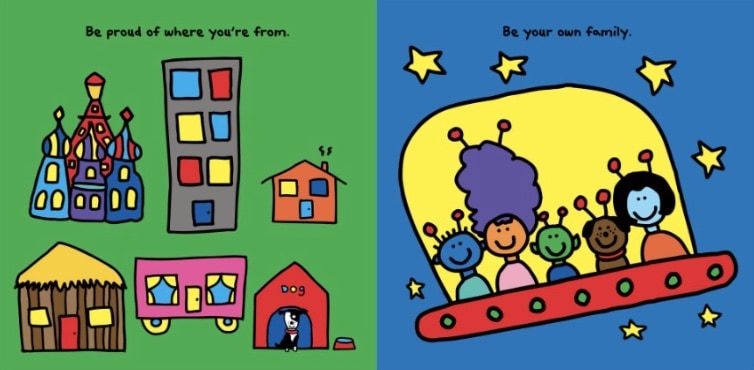
Among others, artist Frida Kahlo’s promiscuity is mentioned, as is her "legendary" stunt bombing one of her teachers for not teaching Karl Marx. Prager’s apparently more serious moments come when she’s discussing attempted gender "transitions," something she praises Magnus Hirschfield for pioneering ("Yay, Magnus!"). In a section titled "Lili Is Really Born," Prager recalls how Danish painter Lili (Einar) Elbe pursued "a series of dangerous, mostly experiential procedures beginning with eliminating the original external sex organs and ending with adding internal ones." After recounting the "success" of Lili’s "castration," Prager notes Elbe’s two additional surgeries "to get a vagina and fully developed ovaries."
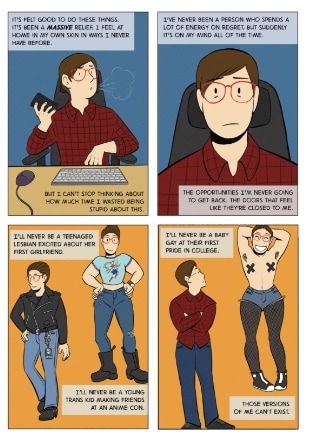
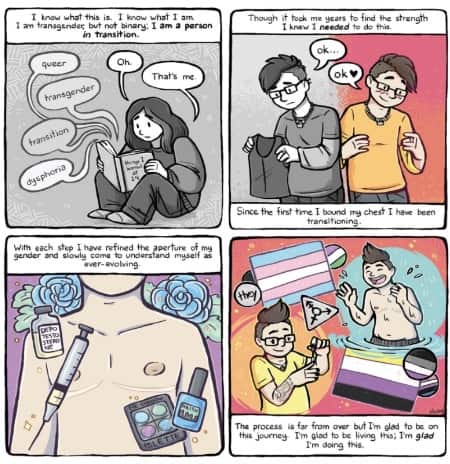
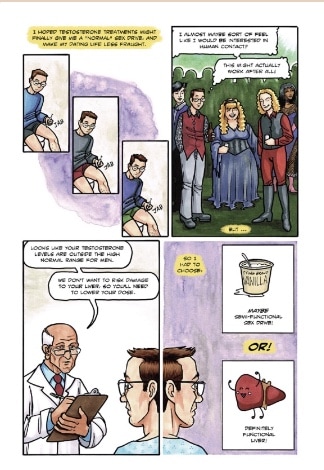
The attempted “transition” proved to be fatal as Prager notes that Elbe died of complications from attempting to surgically implant a uterus ("so that she could give birth"). That chapter ends with Prager quoting Elbe as saying, "I shall at least have known what it is to live."
Books promoting "transgender" surgical or hormonal interventions as valid options
"Trans+" (West Ada – Centennial High School)
"Trans Mission" (Pocatello – Century and Highland High School)
"Coping with Gender Fluidity" (Idaho Falls – Skyline High School)
"Super Late Bloomer: Early Days" (Twin Falls – Magic Valley High School)
"Let’s Talk About It: The Teen's Guide to Sex, Relationships, and Being a Human" (West Ada – Centennial High School)
"GLBTQ: The Survival Guide for Gay, Lesbian, Bisexual, Transgender, and Questioning Teens" (Twin Falls – Magic Valley High School)
"Be Gay, Do Comics: Queer History, Memoir, and Satire from the Nib" (West Ada – Centennial High School)
"S.E.X: The All-You-Need-to-Know Progressive Sexuality Guide to Get You Through High School and College" (Twin Falls – Magic Valley High School)
"Queer, There, and Everywhere: 23 People Who Changed the World" (Six schools in Twin Falls – Twin Falls High School, Pocatello – Century and Highland high schools, and West Ada – Owyhee, Eagle, and Centennial high schools)
"Gender Identity: Beyond Pronouns and Bathrooms" (Pocatello – Century and Highland high schools)
"The ABC’s of LGBTQ+" (West Ada – Eagle High School, Lowell Scott Middle School, Rocky Mountain High School)
Elbe’s dangerous surgeries took place in the early 20th Century, but even with advances in modern medicine, procedures and hormone manipulation carry severe and devastating complications, as often highlighted by "detransitioners." The surgeries themselves involve warping extremely sensitive areas of the body in ways that can be painful just to observe in an animated form. Bertie, however, dismisses the dangers and claims of "self-mutilation" in part by declaring that "[b]y having surgery, I’m repairing my body, not mutilating it."
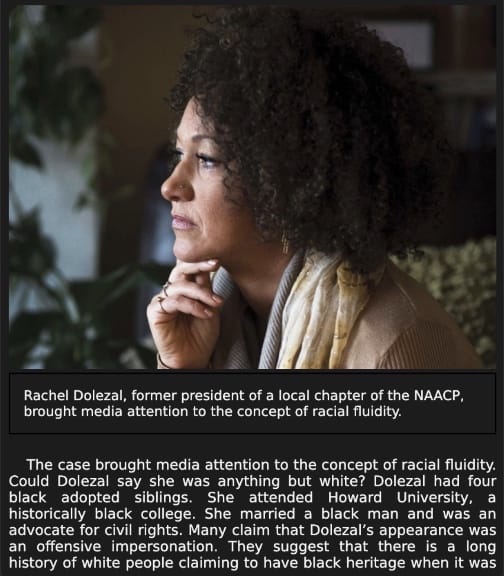
Noting the high price for "top surgery," Bertie encourages readers to donate to fundraisers for procedures. Bertie also discusses the type of medication they used as well as why they chose a particular "top surgery" to remove parts of the author's breasts. At one point, Bertie’s book dismisses concerns about the danger of "bottom surgery" (such as phalloplasty) by comparing it to having one’s teeth pulled. "Every kind of surgery has risks," says Bertie. "Hell, even getting a tooth pulled has risks in the fine print that nobody bothers to read."
Collectively, books in Idaho libraries present identity as something that’s fairly malleable and detached from both biological reality and any philosophical or theological system. "S.E.X," for example, starts with a pledge: "I pledge allegiance … to myself and the united state of my sexuality." What follows, though, is not a united and coherent vision of sexuality but rather a confusing array of sexual behaviors and identities — including ones that fly in the face of traditional ideas about bodily and sexual integrity.
As the above indicates, teens are encouraged to disintegrate into a morass or "galaxy" of inclinations before deciding on one, even if it is inherently unstable or formless. Some examples are below but content like this can be seen in numerous other books:
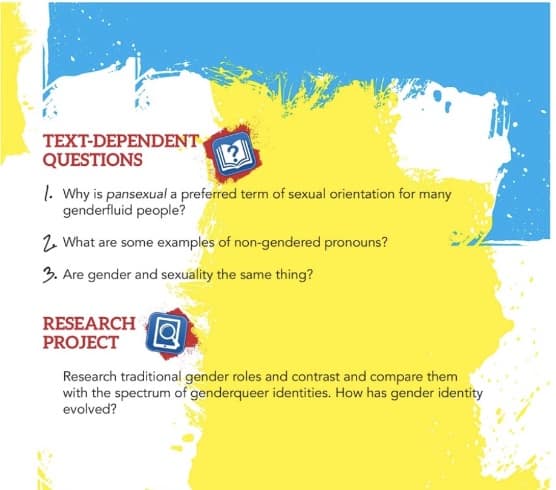
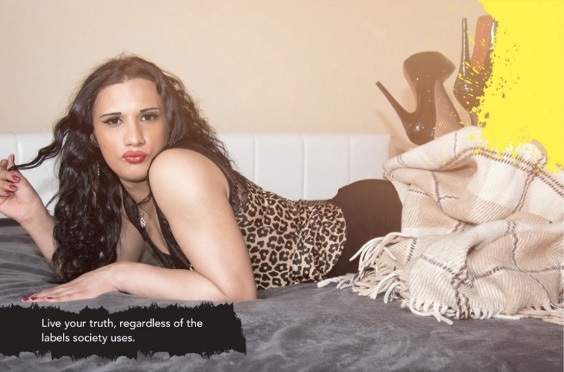
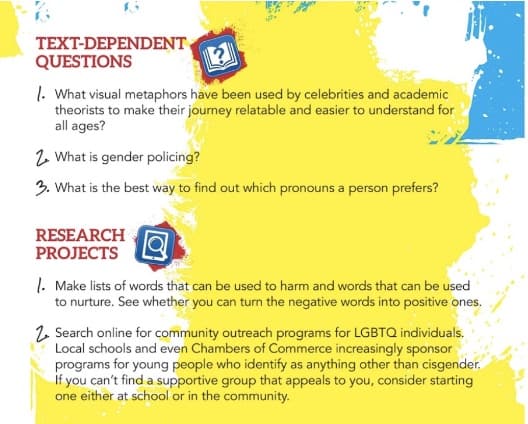
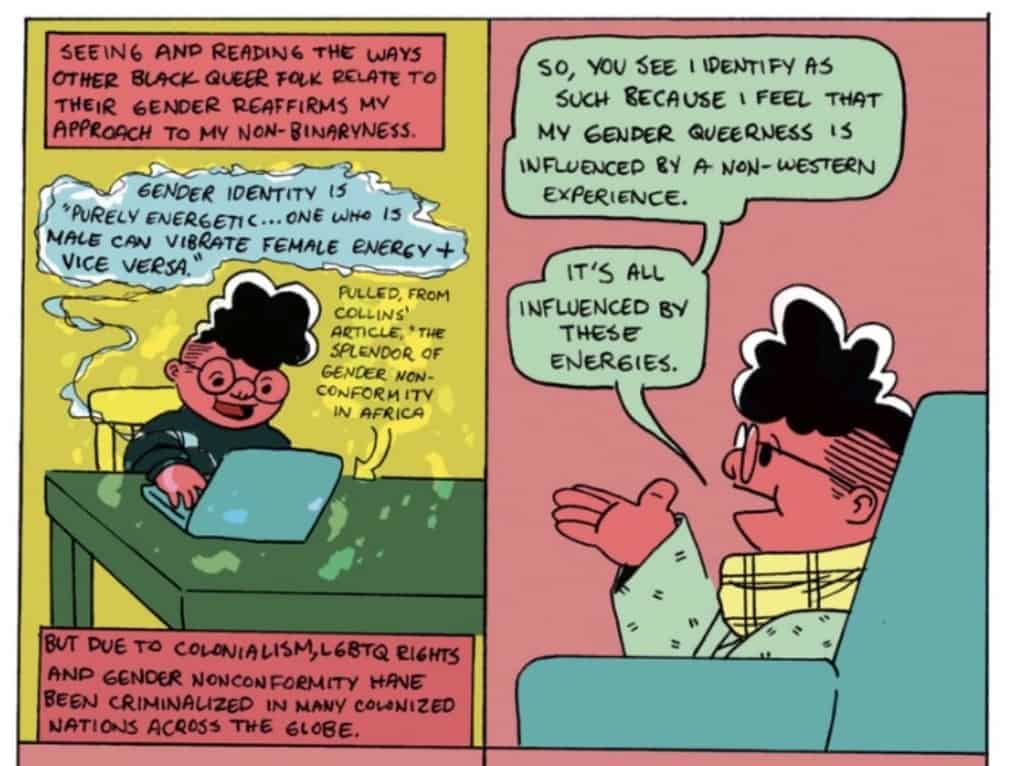
The purported “fluidity” in identity may extend to race. Rachel Dolezal notably exploded headlines in 2015 when it was discovered that she was attempting to live as a black woman — even leading her local NAACP chapter despite actually being white. She was a laughingstock of most, but apparently not for Stephanie Lundquist-Arora, whose book "Coping With Gender Fluidity" features Dolezal for "bringing media attention to the concept of racial fluidity." Lunquist-Arora’s book has been circulating in Idaho Falls’ Skyline High School.
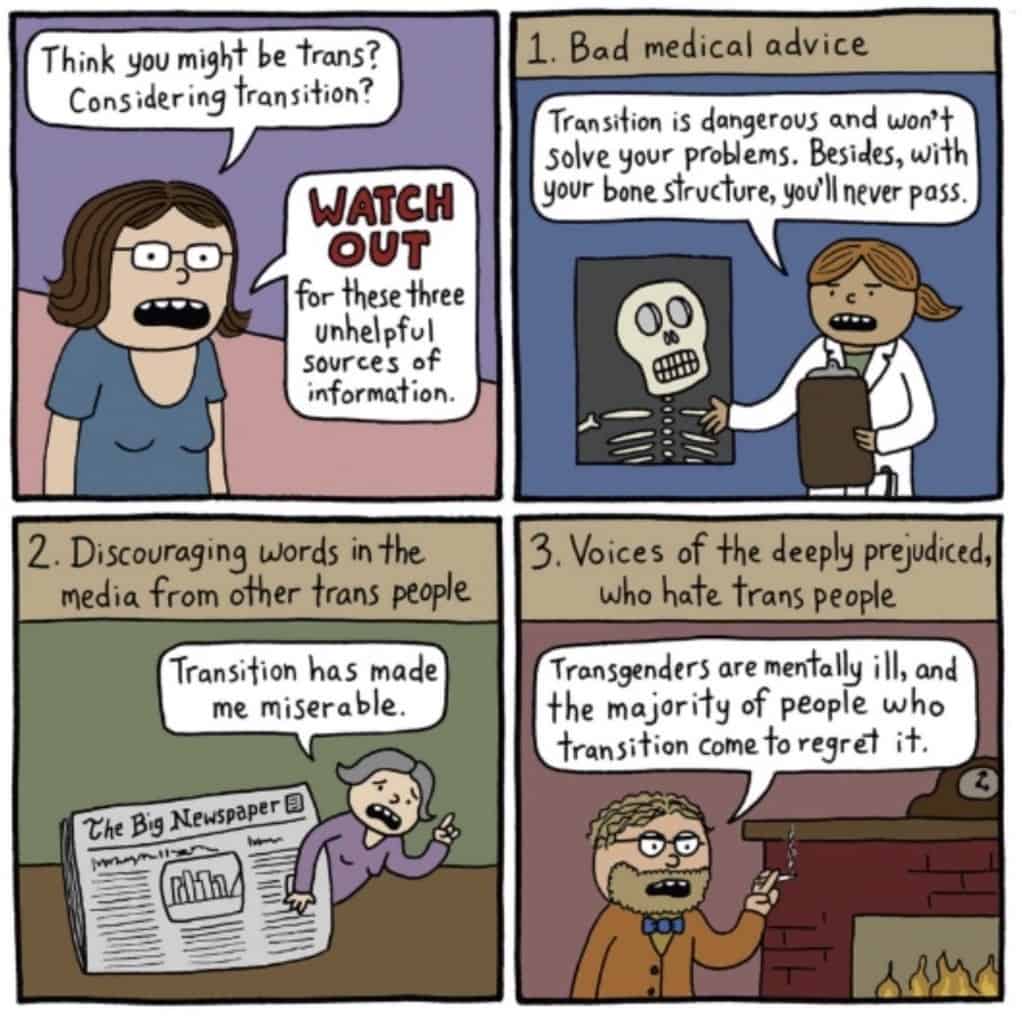
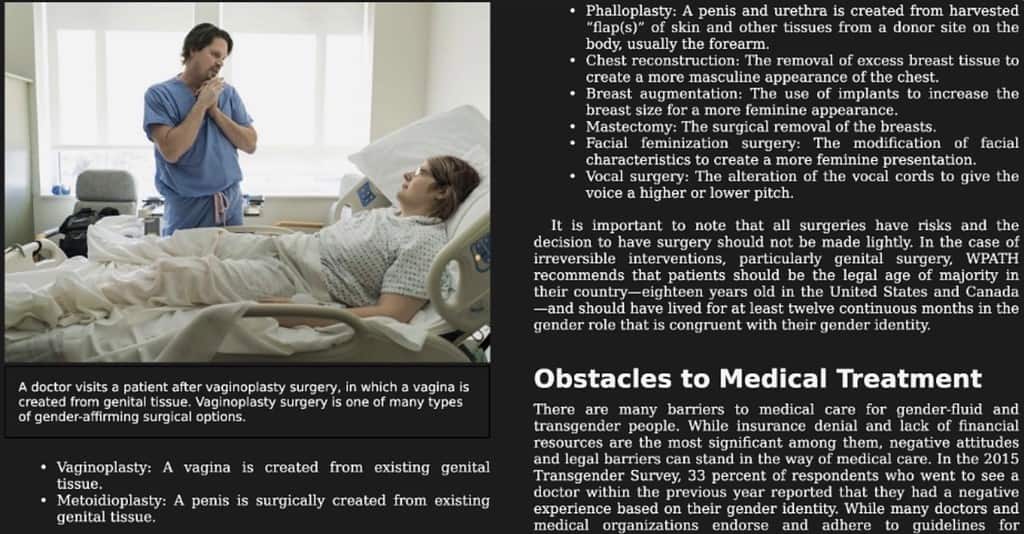
After learning about varying forms of fluidity, teens may learn about a variety of interventions — sterilization, abortion, hormone manipulation, and plastic surgery — designed to both suppress biological realities and insist on their new "identity." Indeed, books regularly remark on how surgeries lessen dysphoria by ensuring that a person’s body matches their purportedly authentic, internalized sense of self. "S.E.X." tells readers to "Be Pro-Choice!" while informing them about sterilization and surgical abortion procedures. It also discusses abortion costs and refers readers to the National Network of Abortion Funds, which works to "remove financial and logistical barriers to abortion access." One of its funds is named after the deity Lilith, who has been described as a threat to women and childbirth.
Conspicuously lacking from these books is alternative perspectives pointing out, for example, it’s odd that someone would need several rounds of plastic surgery to live as their true self. Instead, these texts encourage interaction with an amorphous community that agrees with these ideological positions.
Alternative perspectives may even be actively discouraged in texts like “Coping with Gender Fluidity” (Idaho Falls’ Skyline High School), which goes so far as to admonish readers seeking medical care from medical professionals who don't take an "affirming" approach. The book tells readers to plainly seek other help if the doctor says they’re not willing to prescribe puberty blockers. "You should not have to educate your doctor on gender dysphoria or persuade them on philosophical matters," the book reads. It adds that readers should ask doctors if they adhere to standards from the World Professional Association for Transgender Health, a radical group that has come under heavy scrutiny.
Medical professionals aren’t the only authority figures that books suggest kids should bypass in pursuing their sexual or gender identities. While many books contain sympathetic messages about parental responses, many suggest their direction might be incorrect or worth bypassing because they deny something as purportedly innate as "transgenderism."
"Coping with Gender Fluidity" laments that "[a]ge of consent and state health care policy provide the most substantial legal barriers to care." It goes on to note the need for parental consent and gaps in Medicaid coverage before stating: "There are many ways to utilize others’ expertise on how to access health care. Local transgender communities and LGBTQ+ support groups on social media can provide a wealth of information."
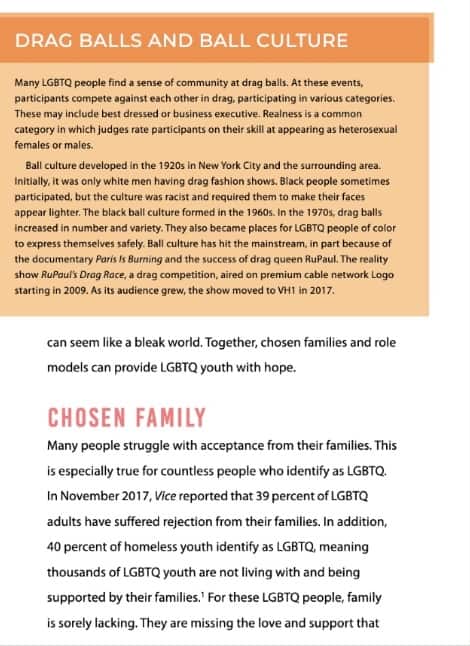
Books like "Growing Up LGBTQ" promote the idea of "chosen family" that someone can pursue if their biological family doesn’t endorse their views on sexuality and gender. That particular book recommends readers pursue online community. In its section on family, that book also promotes "drag balls and ball culture," saying "many LGBTQ people find a sense of community" at those events. Copious news coverage has recently revealed how highly sexualized those events can be. IDEA similarly promotes "Who is RuPaul" of "RuPaul's Drag Race"
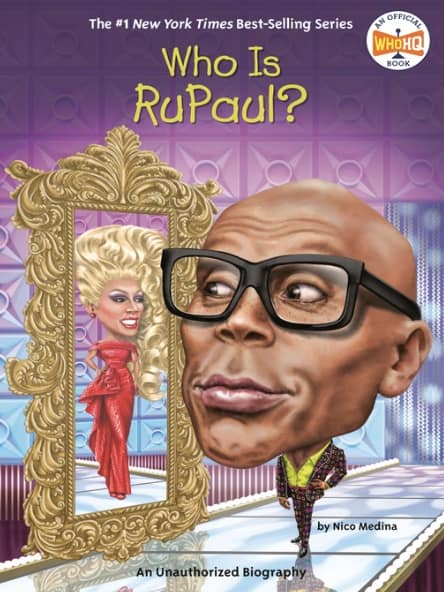
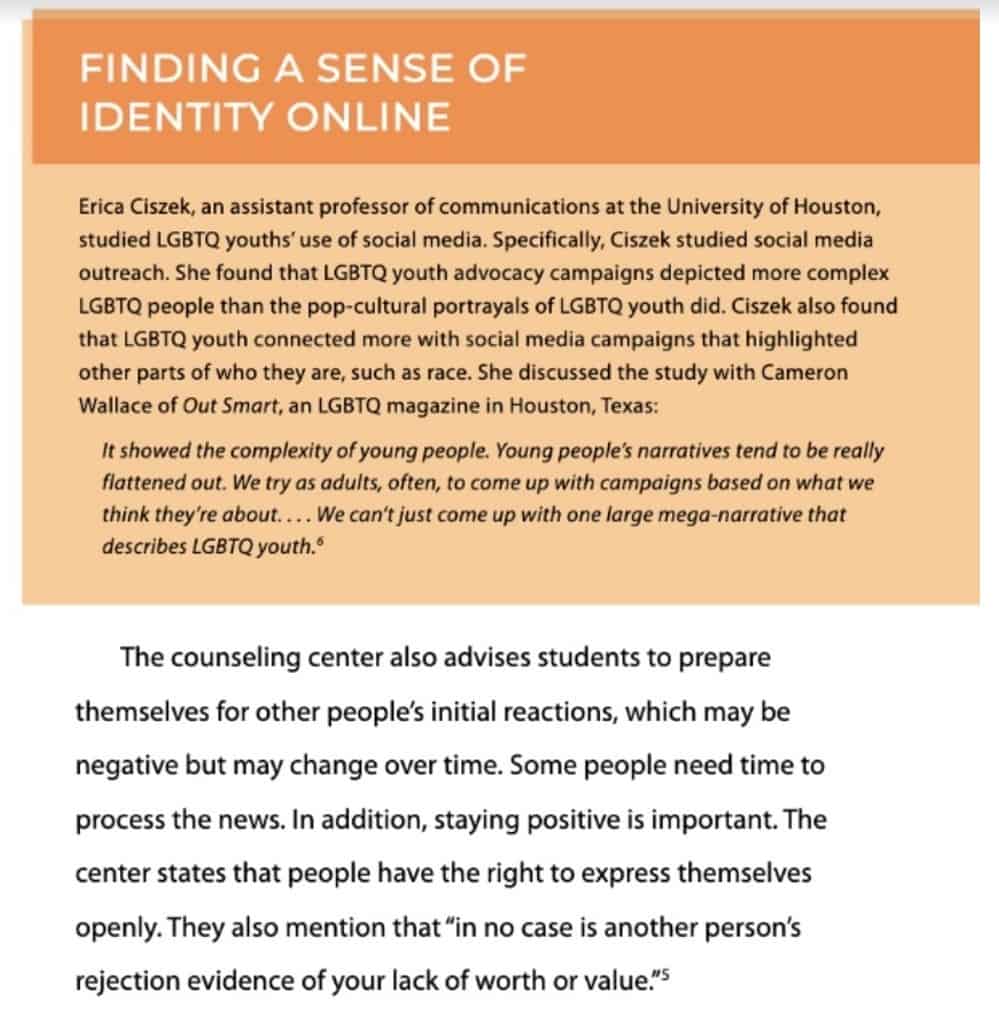
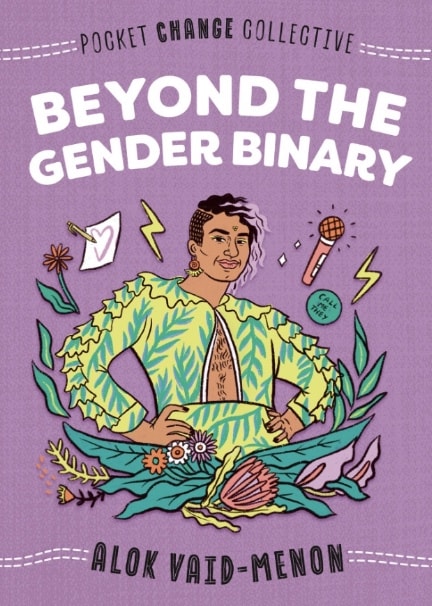
The GLBTQ survival guidebook claims, among other things, that a person is "born a trans person." Similar claims are in "I am Jazz," which has been circulating in Twin Falls’ Harrison Elementary School. In it, Jazz states: "I have a girl brain but a boy body. This is called transgender. I was born this way!" It also tells the story of how Jazz’s parents were resistant but ultimately accepted an alternative gender identity for their child after speaking with a doctor. It’s been promoted on PFLAG’s Transgender Reading List for Children, the GLSEN National Student Council 2021 Elementary School Book List, Feminist Books for Kids list of ‘picture books with trans and non-binary characters,’ and Social Justice Books LGBTQ+ list for kids. Nampa’s Skyview High School and Twin Falls' Magic Valley High School have circulated the more mature book titled “Being Jazz: My life as a (transgender) teen.”
Other books are similarly confident in their embrace of gender ideology. "Beyond the Gender Binary" (Pocatello’s Highland High School and West Ada’s Centennial High School) by Alok Vaid-Menon includes a section suggesting that opposition to gender-bending lacks proper perspective about science. “Sex is not only biological, it is also cultural,” Vaid-Menon declares. Vaid-Menon sets up the book as “about the gender binary. Specifically why we need to move beyond it … This false choice of boy or girl, man or woman, male or female is not natural – it is political.”
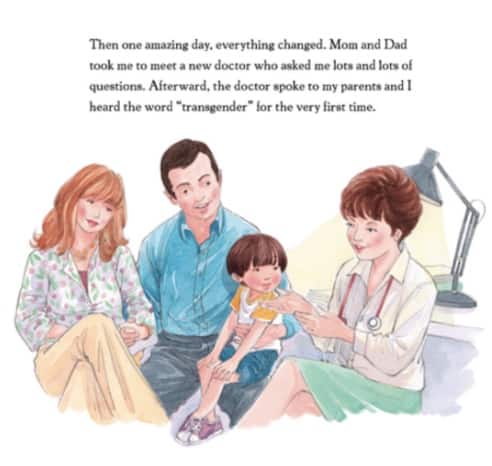
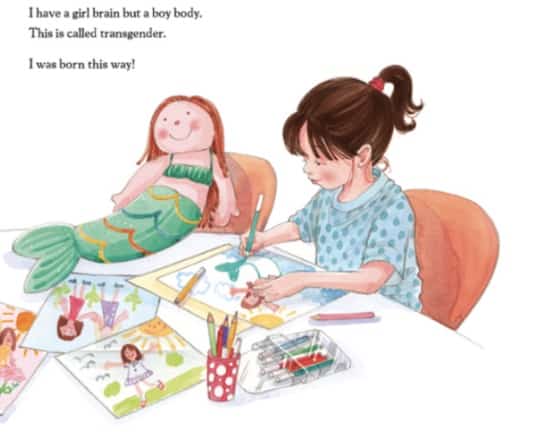
It seems obvious that once someone decides on a new “identity,” that will have far-reaching consequences for their lives. As indicated by the handbooks’ wide scope, this includes changes to family structure, spirituality, and political or civic engagement. Other books assist the more didactic in pushing changes to family structure.
Rather than providing balanced perspectives, these books often simply assert certain ideas about sexuality and gender to kids who might not have even reached an age (elementary and middle school) in which they can critically analyze such statements.
Books promoting alternative family structures and "LGBTQ+" or "LGBTQ+"-recommended content that have circulated in Idaho elementary schools (Note: Many of these books have circulated in middle and high schools across multiple districts)
"I am Jazz" by Jazz Jennings (Twin Falls – Harrison Elementary School)
"House of Hades" by Rick Riordan (Twin Falls - Perrine Elementary School; West Ada - Chaparral Elementary School, Andrus Elementary School, Barbara Morgan STEM Academy, Christine Donnell School of the Arts, Desert Sage Elementary School, Discovery Elementary School, Eagle Hills Elementary School, Spalding Elementary School, Frontier Elementary School, Galileo STEM Academy, Hillsdale Elementary School, Hunter Elementary School, Joplin Elementary School)
"Lily and Dunkin" by Donna Gephart (West Ada - Galileo STEM Academy)
"The 57 Bus" (West Ada - Galileo STEM Academy)
"Be Who You Are" by Todd Parr (Twin Falls - Perrine Elementary School; Pocatello - Greenacres Elementary School, Indian Hills Elementary School, Jefferson Elementary School, Lewis and Clark Elementary School; West Ada - Willow Creek Elementary School, Pleasant View Elementary School)
“Families” by Shelley Rotner (Twin Falls - Bickel Elementary School)
“Lumberjanes 3” by Noelle Stevenson (Twin Falls - Pillar Falls Elementary School)
“Red: A Crayon’s Story” (Twin Falls - Perrine Elementary School, Morningside Elementary School, Sawtooth Elementary School; Pocatello - Edahow Elementary School, Greenacres Elementary School, Indian Hills Elementary School, Washington Elementary School, Wilcox Elementary School; Idaho Falls - Linden Park Elementary School; West Ada - Frontier Elementary School, Galileo STEM Academy, Hillsdale Elementary School, Mary McPherson Elementary School, Pepper Ridge Elementary School, Pioneer Elementary School, Pleasant View Elementary School, Ustick Elementary School)
"I am Billie Jean King" by Brad Meltzer (Twin Falls - Rock Creek Elementary School; West Ada - Frontier Elementary School, Mary McPherson Elementary School, Pepper Ridge Elementary School, Pioneer Elementary School, Willow Creek Elementary School)
“The Whispers” by Greg Howard (Twin Falls - Bickel Elementary School; West Ada - Ponderosa Elementary School; Eagle Elementary School)
"It's okay to be different" by Todd Parr (Twin Falls - Harrison Elementary School, Perrine Elementary School; Pocatello - Lincoln Center, Ellis Elementary School, Greenacres Elementary School, Wilcox Elementary School; Idaho Falls - Westside Elementary School; Nampa - Willowcreek Elementary School; West Ada - Chapparal Elementary School, Christine Donnell School of the Arts, Eagle Elementary School, Galileo STEM Academy, Joplin Elementary School, Mary McPherson Elementary School, Paramount Elementary School, Pioneer Elementary School, Prospect Elementary School, River Valley Elementary School, Seven Oaks Elementary School, Siena Elementary School, Star Elementary School, Willow Creek Elementary School)
"Families, Families, Families!" by Suzanne Lang (Twin Falls - Bickel Elementary School; Nampa - Endeavor Elementary School, Willow Creek Elementary School; Pocatello - Edahow Elementary School)
"Rough, Tough Charley" by Verla Kay (Twin Falls - Oregon Trail Elementary School)
"William’s Doll" by Charlotte Zolotow (Twin Falls - Oregon Trail Elementary School)
"Zinnia and Dot" by Lisa Campbell Ernst (Twin Falls - Perrine Elementary School)
"And Tango Makes Three" by Justin Richardson (Idaho Falls - Hawthorne Elementary School; West Ada - Ustick Elementary School, Desert Sage Elementary School, Pioneer Elementary School, Willow Creek Elementary School)
"Julián is a mermaid" by Jessica Love (Nampa - Central Elementary School; West Ada - Willow Creek Elementary School, Pleasant View Elementary School)
"Pink is for boys" by Robb Pearlman (Nampa - Central Elementary School, West Ada - Mary McPherson Elementary School, Frontier Elementary School, Willow Creek Elemetnary School)
"Mister Seahorse" by Eric Carle (Nampa - Lake Ridge Elementary School, Snake River Elementary School)
"My Two Dads" by Julie Murray (Pocatello - Indian Hills Elementary School, Tendoy Elementary School, Washington Elementary School, Wilcox Elementary School)
“My Two Moms” by Julie Murray (Pocatello - Indian Hills Elementary School, Tendoy Elementary School, Washington Elementary School, Wilcox Elementary School)
"Love Makes a Family" by Sophie Beer (West Ada - Willow Creek Elementary School)
"The Misadventures of the Family Fletcher" (West Ada - Galileo STEM Academy)
"And Tango Makes Three," which tells the story of two male penguin fathers, has been circulating in Hawthorne Elementary School in Idaho Falls and four others in West Ada. That book has been promoted by multiple left-wing groups like GLSEN, "Men Having Babies," and Family Equality. The radical, far-left HRC has published an entire lesson plan on Parr's "Be Who You Are," which has been circulating in Idaho Falls’ Westside Elementary School, Willow Creek Elementary School in Nampa, and a long list of schools in West Ada.
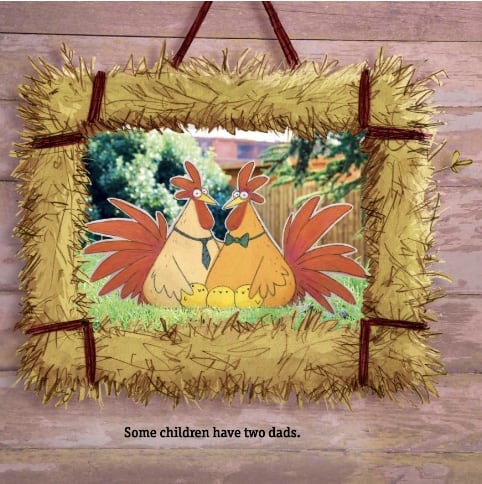
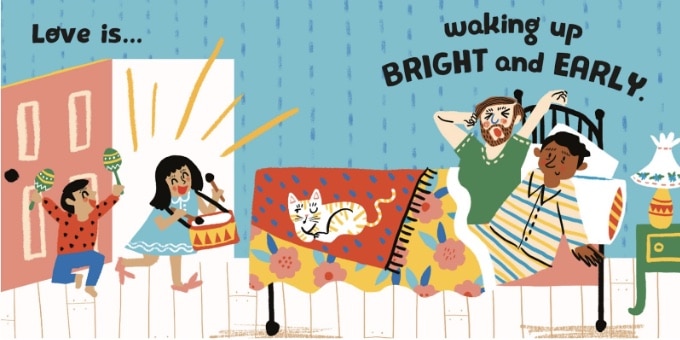
"Let’s Talk About It" features a scene in which characters eat ice cream while one asserts that "[r]omantic relationships come in different flavors. There’s no wrong choice. You can explore as many or as few as you fancy." Further down the page, readers will find a section on polyamorous relationships. "People in polyamorous relationships can have romantic, intimate, loving connections with more than one partner," it reads. "How these are structured is different from person to person and group to group."
Meanwhile, in Twin Falls, Magic Valley High School has circulated "Dad #1, Dad #2: a queerspawn view from the closet." Written by the daughter of former Idaho judge Darrel Perry, that book is more of a combo memoir and apologia for her father’s decision to leave her mother and be with another man. Part of the book includes the author (Natalie) discussing her college thesis on polyamory. Echoing the book "Love Makes a Family" (West Ada - Willow Creek Elementary), Natalie states: "Ultimately, the one thing that makes a family is love … At the end of the day, we should all be able to recognize that love is love." Earlier in that chapter, she states that "I found poly people and their families to be just like everyone else."
These books often encourage the pursuit of political or social activism in line with "pro-LGBTQ" goals and destabilizing sexual identity throughout the culture. For example, "S.E.X." urges readers to "subvert the status quo" and contains a section on "How to Be Transfriendly and Subvert Crummy Gender and Orientation Stereotypes in Five Easy Steps."
Books like GLBTQ provide guidance onthe creation of "gay-straight alliances" within schools while directing them to resources from left-wing groups like the HRC. Other groups like Planned Parenthood get a shout out from "S.E.X.," which promotes abortion and sterilization as options for readers. "Coping with Gender Fluidity," meanwhile, encourages readers to detail alleged microaggressions in "invasive questions like ‘Are you a boy or a girl?'"
Republicans and their policies are often framed in a negative light as well. "Be Gay, Do Comics" is likely the most overtly political. It showed, among other things, a comic instructing readers to "rig a custom guillotine to behead a doll that bears a coincidental resemblance to a politician and the fake blood will reveal the gender! Vive La Revolution, Baby!"
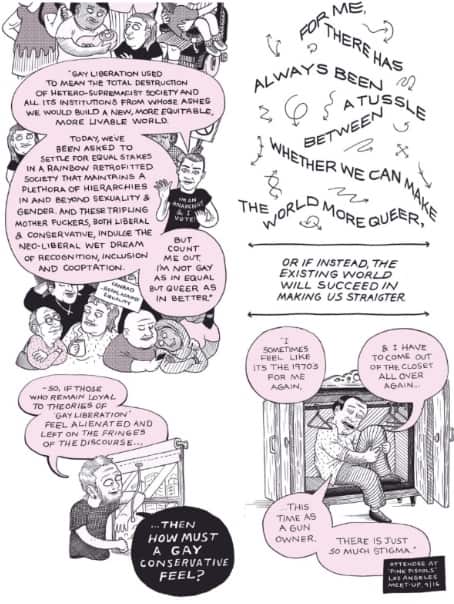
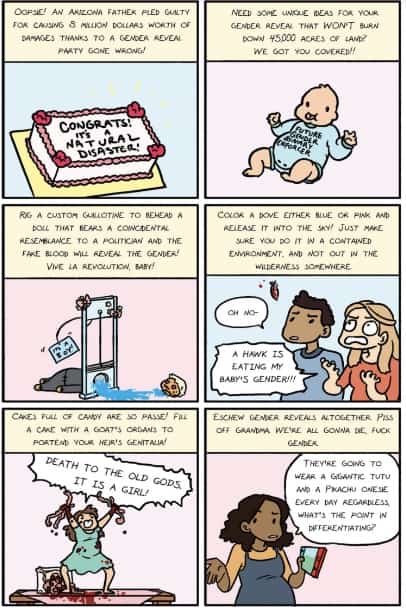
The views espoused by these books often conflict with authentic Christian teachings on sexuality and gender and, therefore, either lead to criticisms of Christianity or nudges towards alternative beliefs. "Growing Up LGBTQ," for example, promotes "The Naming Project," which states its goal as "to provide a safe and sacred space where youth of all sexual orientations and gender identities are named and claimed by a loving God; can explore and share faith; experience healthy and life-giving community; reach out to others; and advocate for systemic change in church and society." In various books, orthodox beliefs are often portrayed as relics of Western colonialism, while pagan or New Age beliefs are suggested as viable alternatives. "Be Gay, Do Comics" contains a Christian character who suggests people’s religious affiliations are "all just an accident of birth." "Trans+" goes so far as to suggest to readers that “transgender” people are "divine."
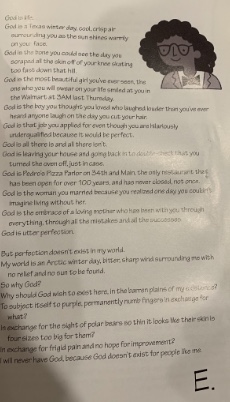
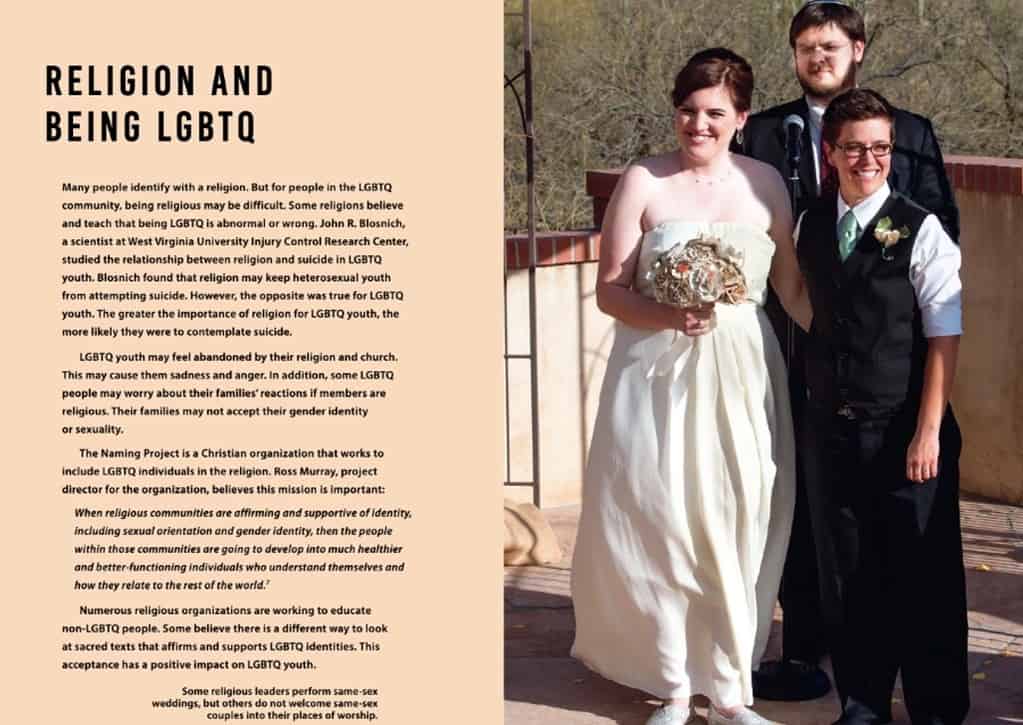
"No matter where you live, it is important to know this: Transgender and gender-nonbinary people have often held a revered place in their societies. We have been healers, shamans, revered rulers. We are no less than the stars and we are expressions of all that is beautiful in this universe that knows no other constant but change … Know that your ancestors were no less than gods."
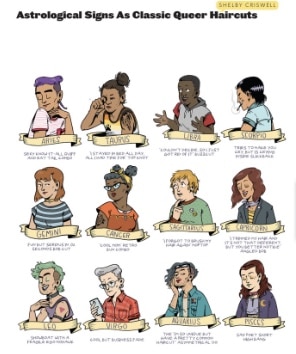
Later, it encourages readers to seek more "accepting" sects and asserts: "It doesn’t matter how you choose to go about understanding yourself and your place in the world and universe, just as long as you do it in a way that feels authentic to you."
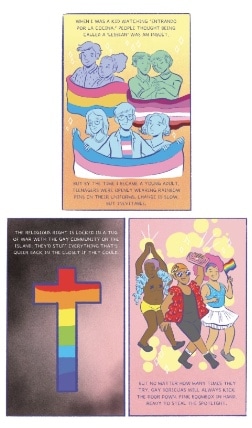
Like other books in Idaho, it suggests orthodox religious views are based on misinterpretations. "Spiritual and religious rejection," it says, "often stems from church leaders selectively interpreting their holy books and philosophical documents in a way that suits their narrow human understanding of what is right and good in the world." As usual, these types of messages often gloss over what conservative religious authorities tend to espouse — a separation between acts and inclinations or identities of adherents.
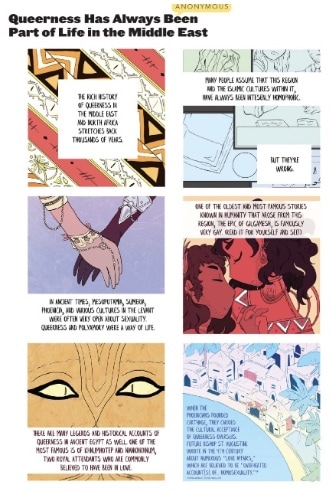
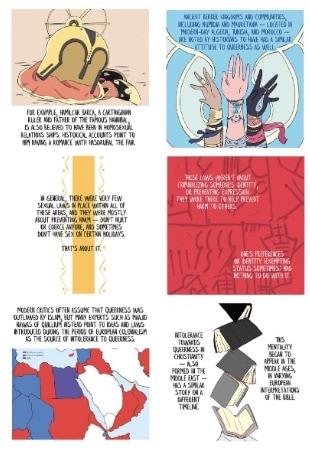
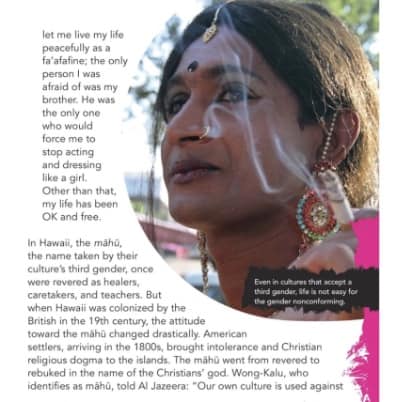
The religious content in "Trans+" is similar to "Queer, There, and Everywhere: 23 People Who Changed The World," which has circulated in three districts and, among other things, accuses colonists of "outlaw[ing] homosexuality" based on a “bad interpretation of the Bible." That book, however, appears to have taken its own liberties with flawed religious interpretations as it exalted St. Joan of Arc — a canonized Catholic saint — as a "queer" hero.
Author Sarah Prager also celebrates a cross-dressing Roman emperor who, among other things, pretended to be a concubine. After noting the emperor’s death, Prager says: "A dazzling flame had been snuffed out for shining too brightly." She adds: "Elagabus showed the Romans how fierce queerness could really be in the final years before Christianity took hold around the world. That’s the queer spirit: live your life full out as yourself no matter what others think."
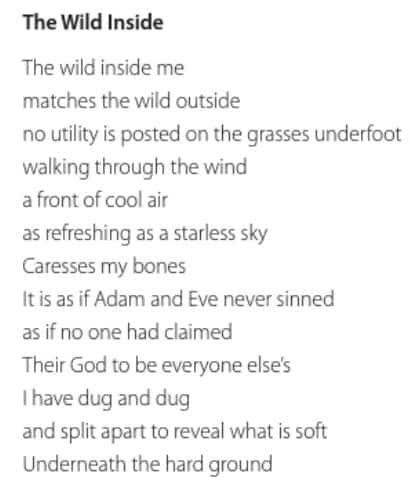
It’s unclear how these books made their way into Idaho libraries, but it appears as though school officials either selected them or allowed the books to remain after receiving them from third parties. Some of the placement appears to be due to staffing and technology. For example, “Let’s Talk About It” and “Trans+” were both purchased by a veteran West Ada librarian, Gena Marker, who has acknowledged handing two graphic books — “Genderqueer: A memoir” and “This Book is Gay” — to a student. She purchased “Let’s Talk About It” through Follett’s Titlewave after reading “starred” reviews (indicating high quality) from Kirkus Reviews and School Library Journal.
Marker, whose library at Centennial was revealed as one of the worst for "LGBTQ+" and explicit content, has been active within the ICfL — including serving as a committee member, raising questions about the entities involved in circulating books to Idaho students.
In some cases, the material comes straight from Idaho students and the Idaho Coalition Against Sexual & Domestic Violence, which hosts annual writing challenges inviting the state’s students to provide content on gender and other issues. Twin Falls’ Canyon Ridge High School has two of these — "Our Gender Revolution: Stories of Transformation” and "We Choose All of Us: Stories of Transformation." It’s unclear which edition of "Our Gender Revolution" is circulating in Canyon Ridge, but a records request indicated that the "We Choose All of Us" content was published in 2019.
Both content collections promote the idea that gender is socially constructed. For example, the 2019 “We Choose All of Us” for high schoolers declares, “[g]ender is one of the core ways we learn to identify and expresses [sic] ourselves. Gender is socially and culturally constructed — it’s something we learn — not just something we inherit though [sic] our biology.”
The poems include more general declarations about inclusion, self-acceptance, the environment, sexuality, and other issues. The intro reads: "At the heart of these writings, we seek to end our culture of domination, extraction, and violence, and create a world with social equity and collective liberation for all human beings — a world rooted in interdependence, resilience, and regeneration."
One poem appeared to take a shot at former President Trump: "TV blaring, President staring. 'Look at all those criminals standing at our gates. Look at all those evil children and thieving babies. They will surely steal the food from our plates.'"
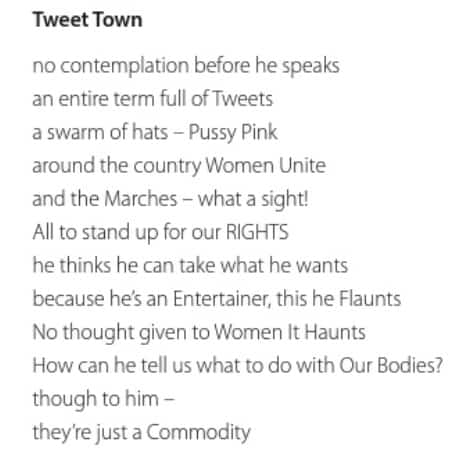
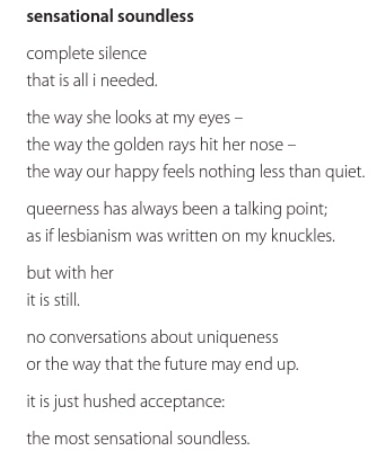
Another praises the "beautiful rainbow tapestry" of stories of individuals with "hardships [they’ve] faced coming out or growing up." Yet another appears to call for gun control, noting, "[e]leven plus shootings in just under a year …[t]he less we do, the more it happens." "We used to look to cops for protection, but now we see the corruption," another reads. The anti-Trump, pro-abortion Women’s Marches also get some praise before this line: "How can he tell us what to do with Our Bodies? though to him they’re just a Commodity."
School districts have provided varying comments for this report — none of which state that they’ve removed the books mentioned. Nampa did not respond to a request for comment. West Ada said that it had removed "Let’s Talk About It" from its library system but didn’t comment specifically for this report.
Twin Falls, Idaho Falls, and Pocatello’s statements are below:
Twin Falls: "The TFSD follows our district policy for selecting, reviewing, and removing books from our libraries. We utilize professional librarians to manage these library collections per district policy. This policy allows patrons to request reviews of books they have concerns about.”
Pocatello/Chubbuck: "The primary purpose of an effective school media center is to enhance and foster the learning process by providing instructional materials and services that support, implement and enrich the curriculum. According to the Pocatello/Chubbuck School District Board Policy Manual, the district prioritizes, among other selection principles, a collection of library resources that represent of a variety of diverse populations and backgrounds, including racial, religious, ethnic, and cultural groups. PCSD 25 Board policies and procedures define the process for media center instructional materials selection and complaint review. According to Board Policy, all instructional materials for use of students through the media centers and classroom distribution shall be consistent with the district’s mission, vision, and beliefs within the scope of the curriculum as adopted by the Board of Trustees."
Idaho Falls Superintendent James Shank: "Our school libraries offer a wide range of reading and educational materials for readers of all ages in a variety of formats that appeal to diverse interests. The titles you highlighted are included in some school library catalogs. The bulk of the titles you listed are part of our high school library catalogs, and the 33 books you’ve highlighted represent just a fraction of the more than 17,500 books purchased for our school libraries during this time period."
"In accordance with board policy, our library purchases reflect the unique needs of each school, and these decisions are made at the local level. As part of an ongoing review, we are currently updating policies to ensure proper oversight of library book purchases, which would include assurances the text is educationally appropriate.
"We take seriously our role working as partners with parents to ensure their children receive the best education. Parents are always welcome to review our curriculum and instructional materials and share concerns with school or district administrators.
"Parents can view the library catalog at their child’s school at any time using the Single Sign On link posted on our district and school websites, and then logging into the Destiny program with their child. Using this tool, they can review the complete catalog and see what books their child has checked out. If parents have a concern about a specific book, they can refer to board policy, which allows for the review, and, if necessary, the removal of books.
"We encourage all parents to get involved, learn more about what their children are learning and reading and to be an active part of their child’s education. We are always happy to work with parents and address any concerns that may arise."


